The Fundamentals of Slow Cooker Black Beans
I am a big fan of slow cooker black beans. It might take 8 hours to make. But it's an entirely hands off version of cooking beans that doesn't mean that you have to soak them overnight or watch a pot slowly simmer for hours! This will give you a more evenly cooked bean that is softer. But certainly not enough to make me want to go to the effort. I much prefer tossing everything into a crock pot and coming back later in the day or the next morning to fully cooked beans!
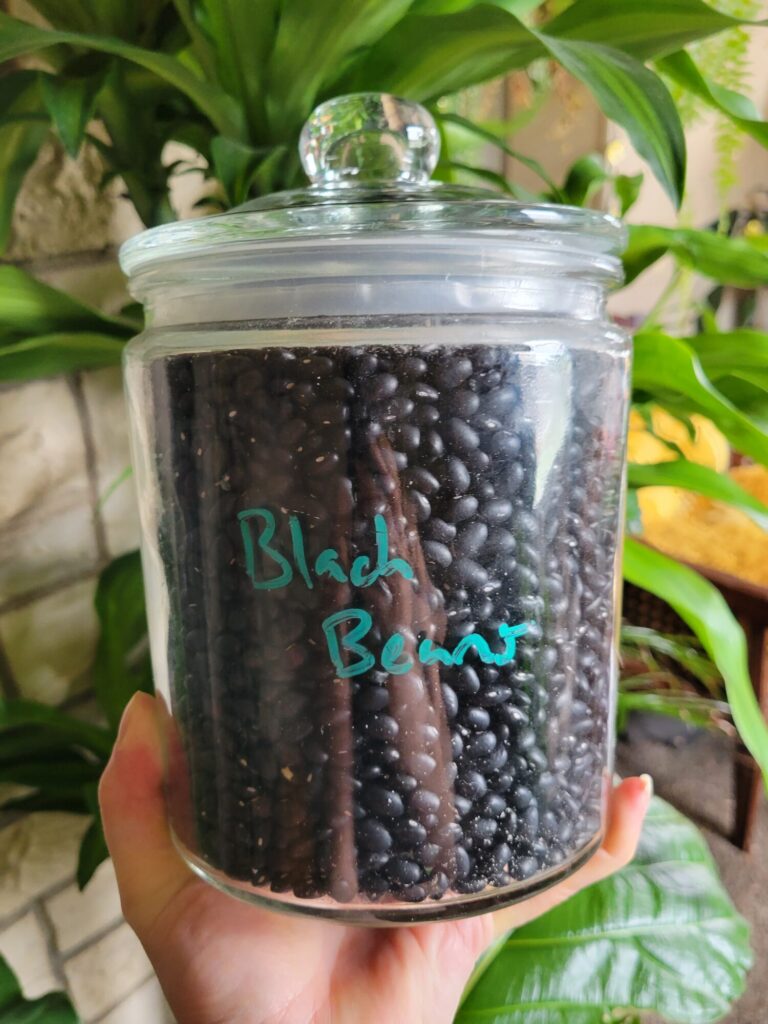
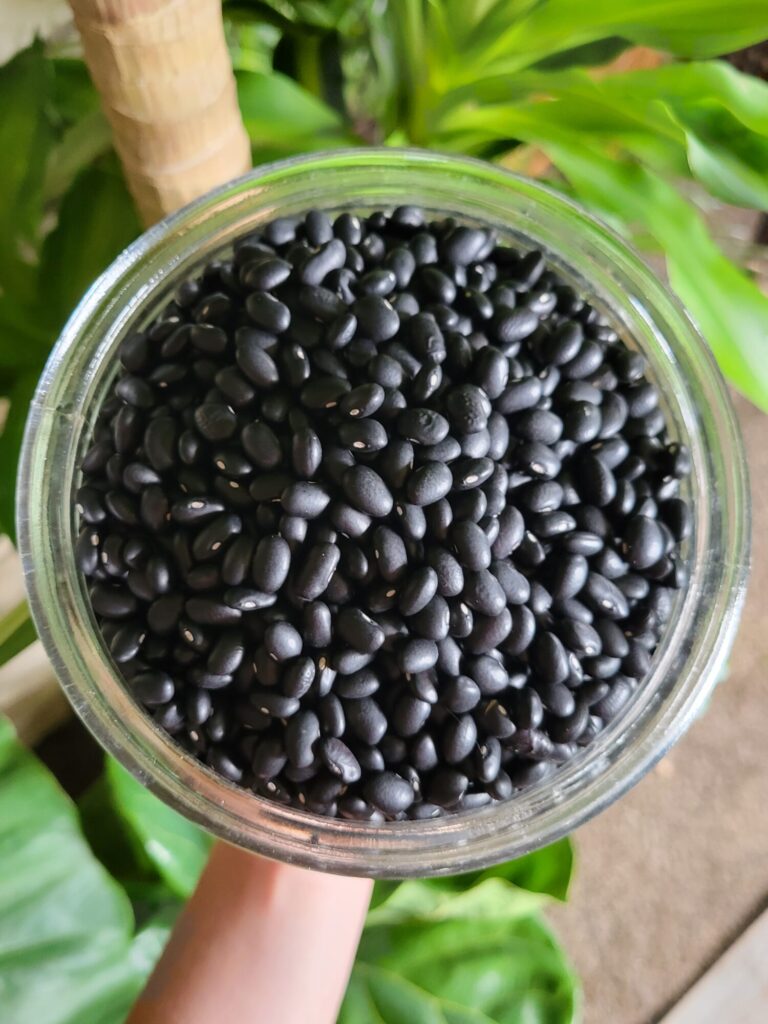
Do You Need to Soak the Beans?
Unlike with simmering black beans on the stovetop, which I do recommend soaking beforehand because it will dramatically decrease the cooking time! It's less necessary to soak the beans before slow cooking them.
Soaking them is entirely optional in with slow cooker beans, though. You can soak them if you want to. It will decrease the amount of time that it takes to cook. And they will soften more consistently. Unsoaked beans in the crock pot tend to hold their shape better. There's more of a crunch to them when they are fully cooked because the outer edge cooks more than the inside of the bean. Soaking helps water to permeate throughout the entire bean, giving it a more even cook.
However, I've never had this matter too much. If you tasted the beans side-by-side? Yes, there probably would be a noticeable difference. But is anyone at your backyard barbecue or in your friends and/or family group sitting around a dinner table or scarfing down absolutely deliciously homemade bean dip going to notice? Absolutely not!
I am a big fan of simplifying recipes when it doesn't actually make that much of a difference. So, I don't ordinarily soak black or pinto beans. I will soak chickpeas, but that's an entirely different story!
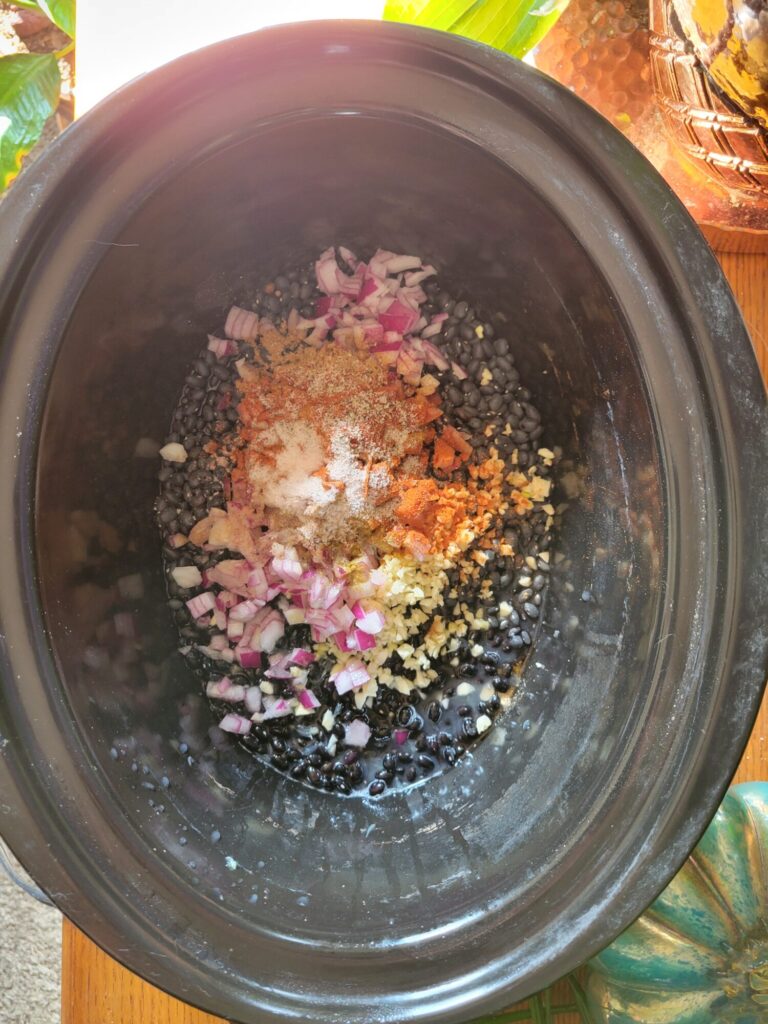
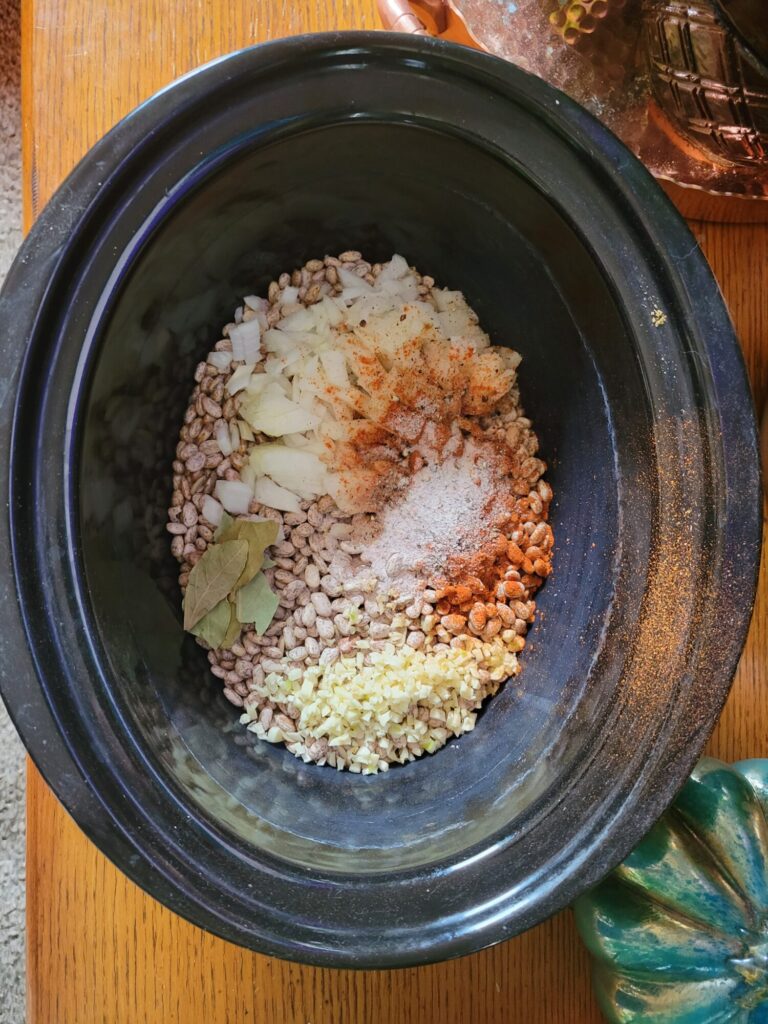
Can You Substitute Pinto or Other Beans?
For the most part, yes. Although the cooking time will vary dramatically. Black beans are a much denser bean that takes far longer to cook than a lot of other varieties. If you cooked pinto beans in a crock pot for 8 hours, they would absolutely turn to mush. I'd recommend more like 6 hours.
White beans also come in a wide variety. With the particularly soft ones, this might be overkill. Not that you can't experiment! I'd imagine most clock in around the 4 hour range.
The Kidney Bean Exception
Kidney beans are the exception to this. Some people will recommend against ever cooking beans in a crock pot because it doesn't boil the beans long enough to remove toxins. And, while this is true for kidney beans, which contain particularly high levels of phytohaemagglutinin. It is not true for most other bean varieties. Kidney beans need to be BOILED, not simmered, BOILED for 10-30 minutes to remove this toxin.
This means that they cannot be cooked in any conventional method, though. Like I said, a lot of the time people will generalize this to all beans and say that you just shouldn't cook beans in a crock pot. This is not true. Simmering beans is the other method of cooking that is generally used. And you also can't simmer kidney beans to remove the toxin. It simply will not get hot enough, no matter how long you cook them, to remove enough levels of phytohemagglutinin to make them edible. Kidney beans need to be boiled.
Luckily, most beans do not contain anywhere near high enough levels of this to be a problem! And almost every other bean that you find in grocery store shelves are perfectly fine to either place in the crock pot or simmer on the stove. Although this is where that misconception comes from, if you've ever heard it overgeneralized.
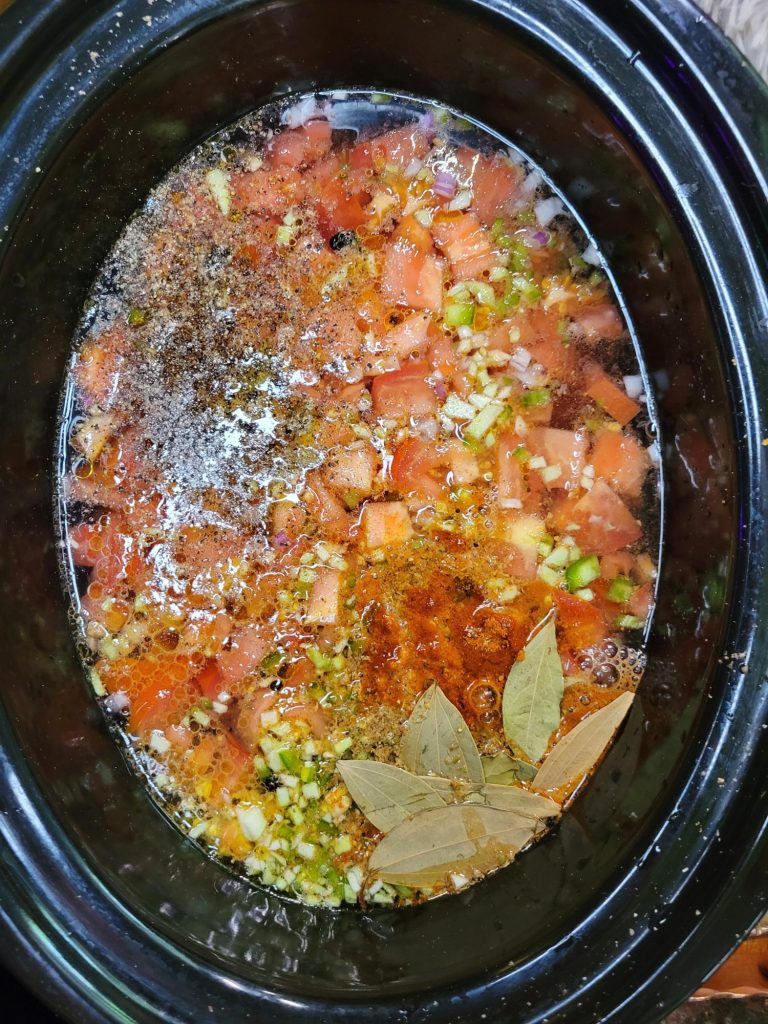
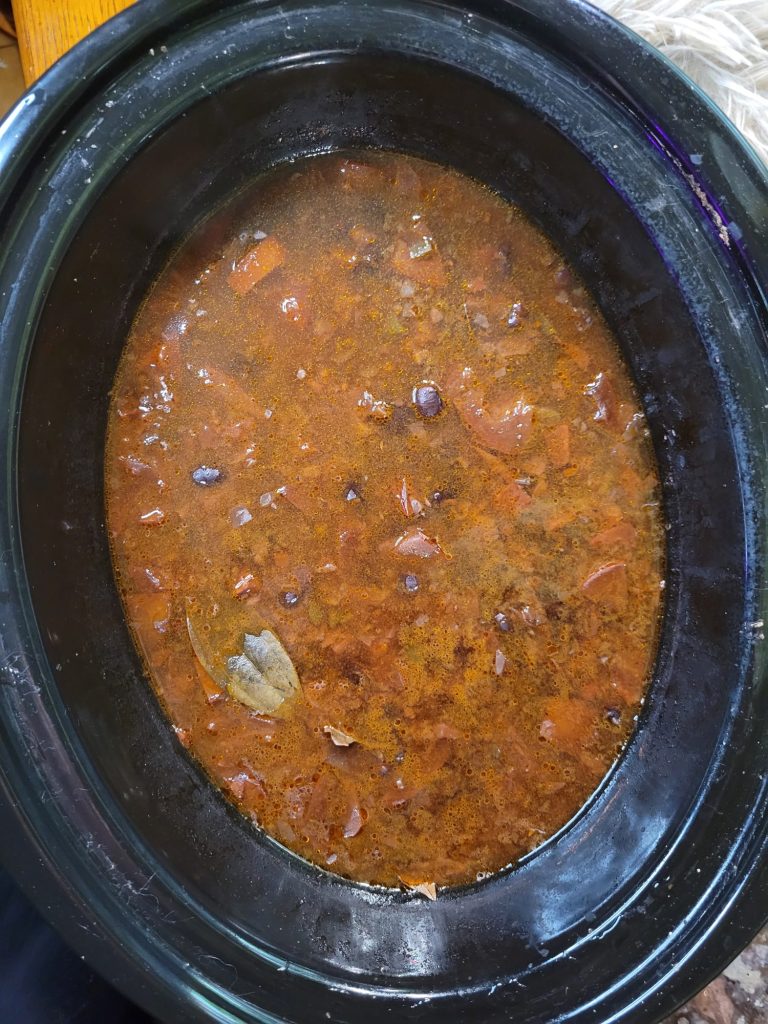
Can You Open the Lid During the Cooking Process?
Unlike a pressure cooker where opening the lid is going to disrupt the cooking process, slow cookers are more like an oven or stovetop where opening the lid and stirring things every now and then isn't going to dramatically alter the cooking conditions. I wouldn't necessarily do this with a rice cooker or something where the cooking time is so small. But almost anything that's cooking for eight hours straight is going to be okay to check on. I'd even recommend stirring the beans every so often just to make sure that the beans on top are still submerged. I've certainly gone to work in the morning or gone to bed at night, not checked on them at all, and then stirred after the cooking time. But doing this once every couple of hours is not going to hurt them!
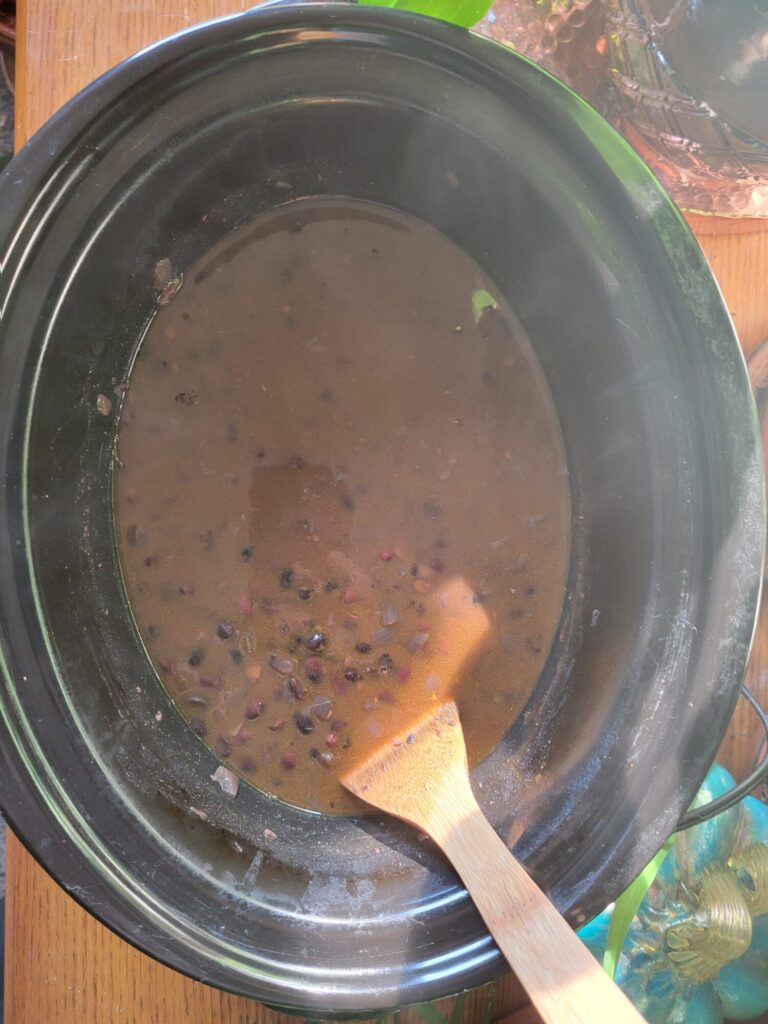
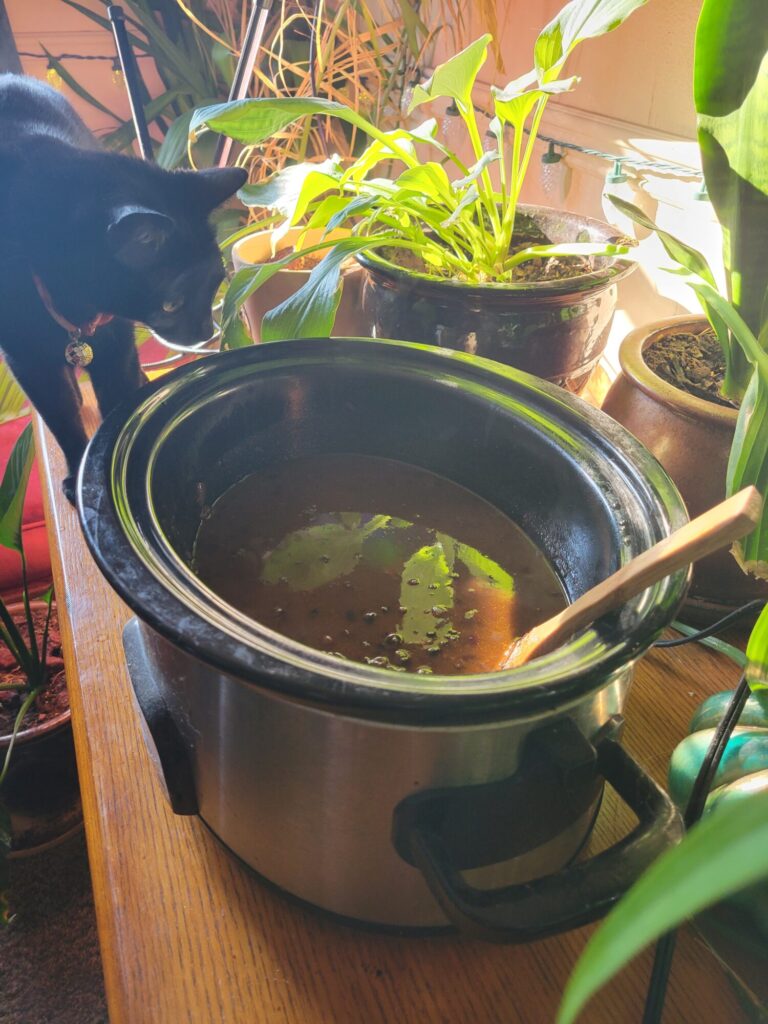
Why Does the Cook Time and Amount of Water Vary from Batch to Batch?
In an absolutely perfect world? You would need the same amount of water to cook beans every single time. Unfortunately, this isn't always the case!
You can add all of these exact same ingredients into an Instant Pot and pressure cook for about 45 minutes. This sounds like a game changer. Fully cooked beans in 45 minutes!?? I would be ecstatic if that really worked as much as I hope that it would. And it does work. But, when you consolidate the time so much, you pretty much have one chance at guessing the amount of water that you need.
So much of how much water you need depends on how long your beans have been sitting. Which most of us have very little idea of.
For how long before these beans were harvested before they were dried?
How long after they were dried did it take for them to reach the grocery store?
How long do they sit in the warehouse?
And how long have they been in the deep, dark crevices of your pantry??
It would be great if packages would list when the produce was harvested (because oftentimes these are much longer than we imagine, even with fresh produce it can be months). And I certainly could not answer a single one of these questions for my own beans.
So, exactly how long and how much water it will take to cook the beans varies.
This is also why I don't like pressure cooking beans. Good luck guessing on the amount of water and time that you need when you boil all of that down to a roughly 45 minute cook!
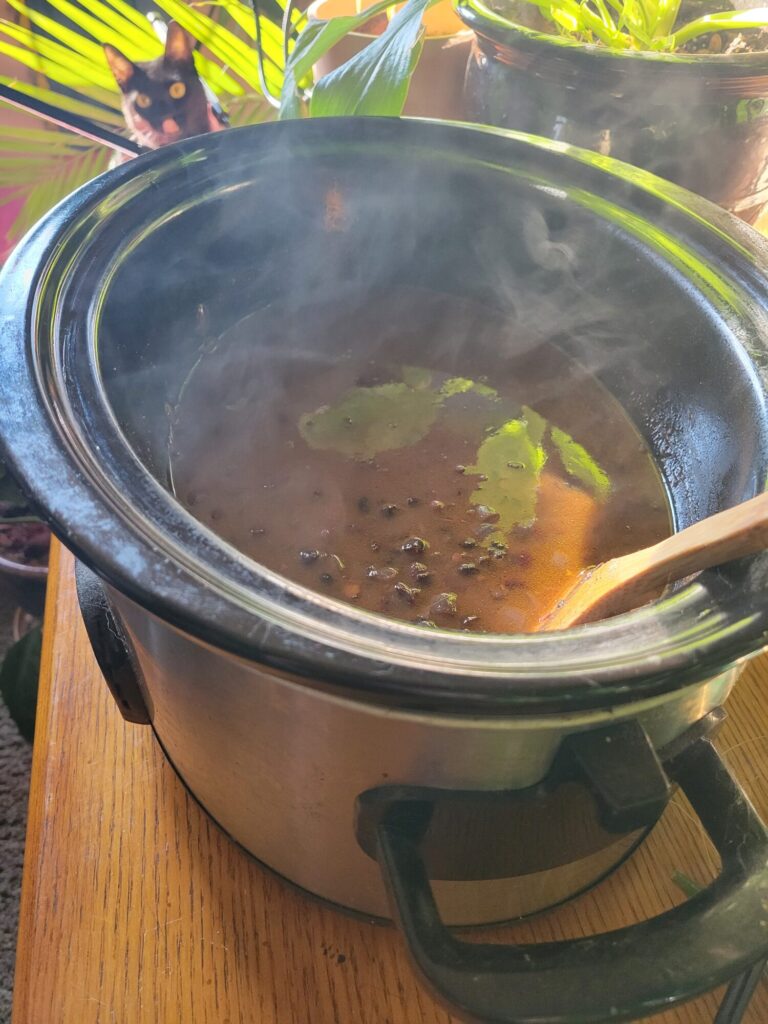
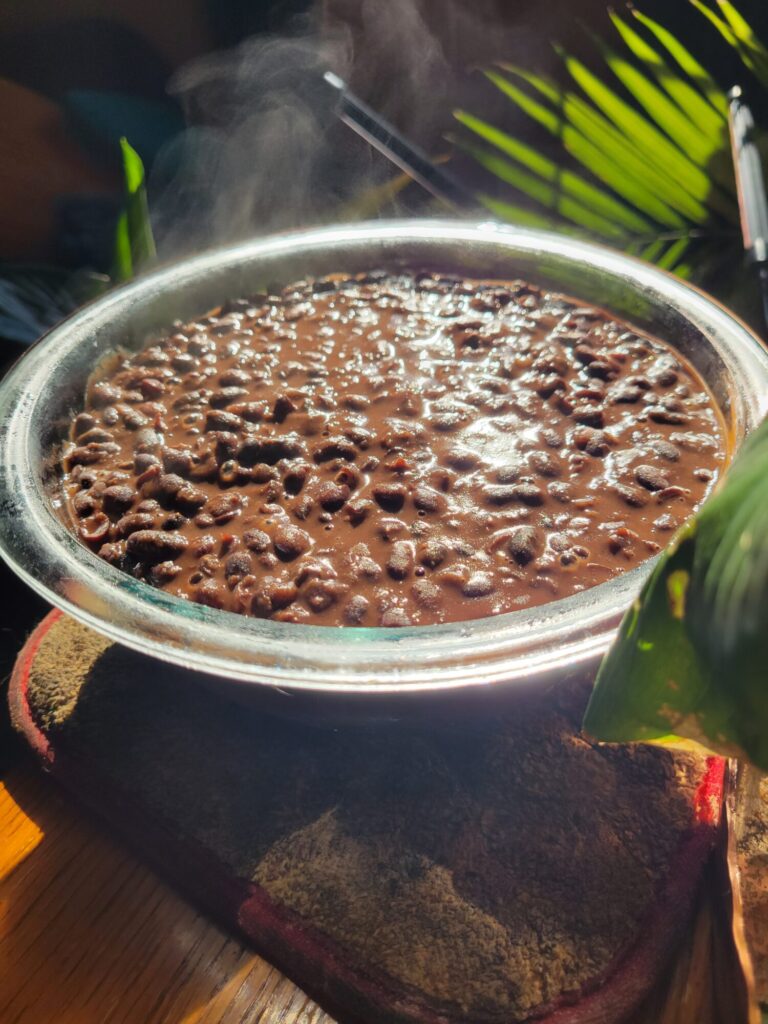
What to Do if You Have Extra Water at the End?
I oftentimes have extra water at the end. This is slightly intentional. I would prefer to have the perfect amount of water every single time! But we have already explored the many reasons that that is likely not to happen. With the same bag of beans cooked in the same general time frame? You can absolutely adjust to fit your particular beans in your particular environment at your particular time.
But, barring that expert knowledge! I would rather just have extra water leftover at the end.
Because the alternative is that your beans run out of water and cook into a disgusting burnt sludge that permeates into the ceramic of your crock pot and for several subsequent uses makes everything taste slightly charred because it absolutely takes on the flavors of your dishes and that quintessential "burnt" taste is definitively not what you're looking for in absolutely everything that you slow cook!
I would rather have extra water at the end. Because I'm not joking. Much like cast iron pans, crock pots do take on the flavor of the dishes that you cook. And the last thing that you want is them perpetually tasting like burned beans. So, just drain the water out or simmer the slow cooker black beans on the stove until enough of the liquid has evaporated.
You may need to add a little extra seasoning if this is the case because the extra water can dilute the flavor. And make sure not to drain or simmer out too much of the liquid. Especially if you want to mash the beans into a pseudo no-fry refried bean dip. Because you will need some extra water for this to be creamy enough.
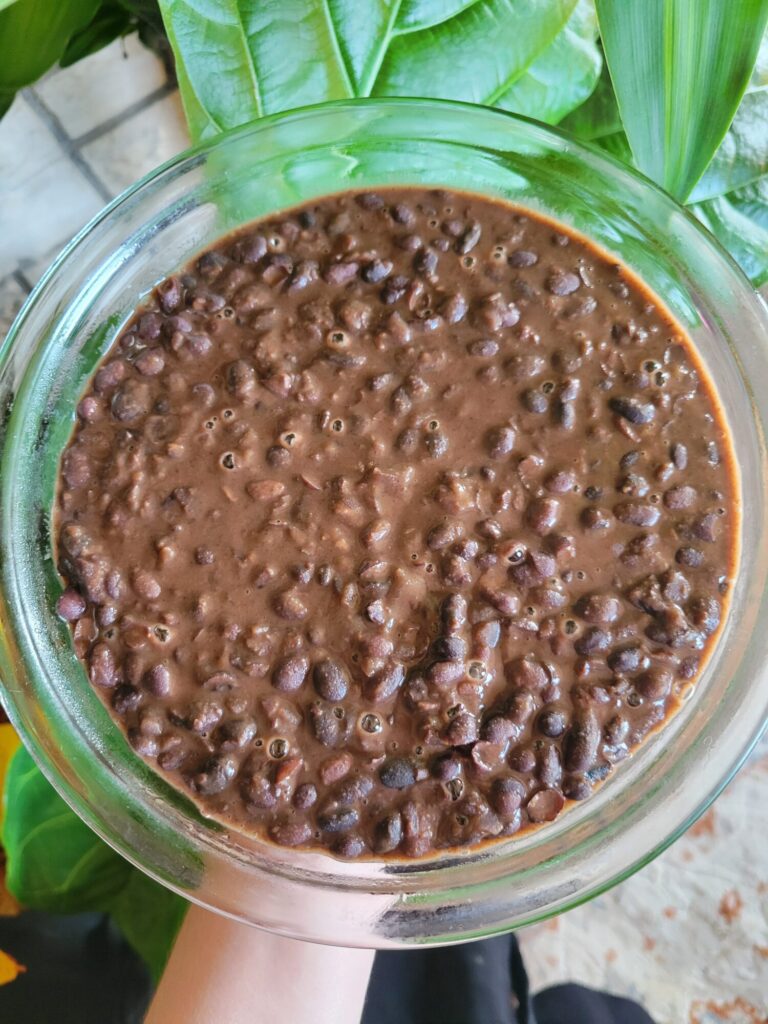
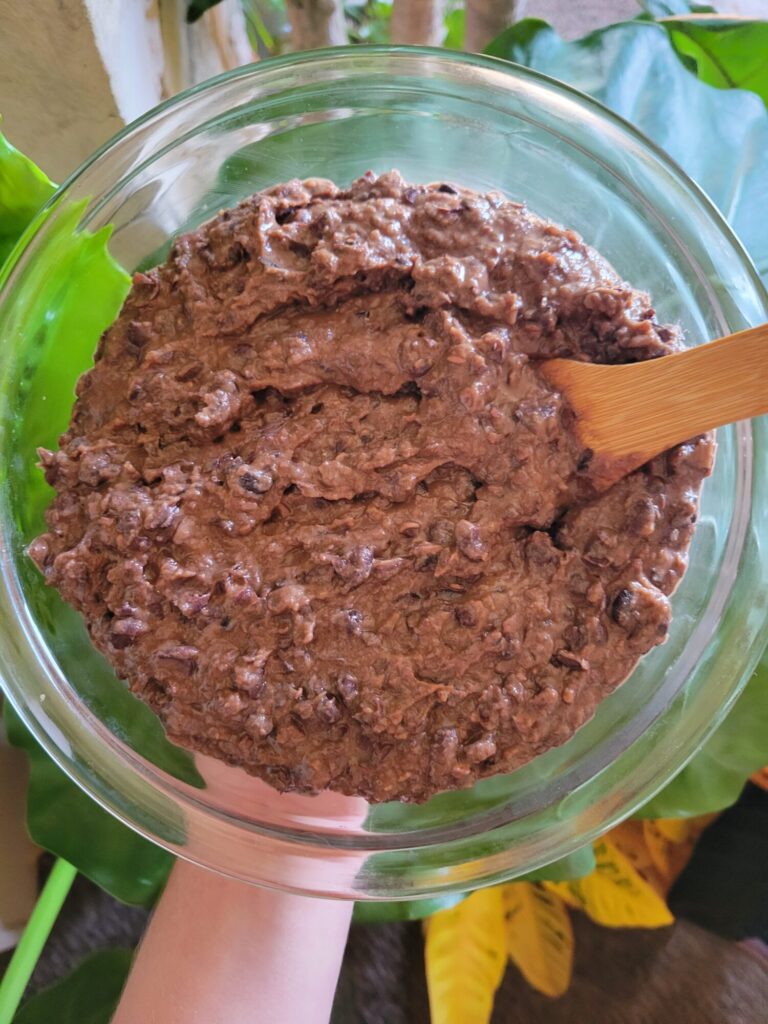
How to Turn Slow Cooker Black Beans Into No-fry Refried Beans
It's incredibly easy to turn slow cooker black beans into no-fry refried beans. I'm a big fan of bean dips or just an easily spreadable form of beans. All you have to do is squish them with a potato masher, mix vigorously with a spatula, or pulse quickly in a food processor.
I'm particularly fond of using a potato masher. This mixes the beans more effectively than a spatula, but doesn't pulverize them as much as a food processor. That way the beans still retain some of their shape and are in some kind of in between stage of a solid and a liquid. To me that texture is what makes refried beans so appetizing.
A potato masher is not necessarily one of the things that everyone keeps in their culinary tool belt, though! It kind of harkens back to an older style of cooking, circa the 1950s or '60s. I believe that I'm still using my childhood potato masher and it still looks as perfectly pristine as it did 20 or 30 years ago! Because these basic tools are almost entirely metal and virtually indestructible.
People tend to use spatulas, instead of potato mashers these days. Silicone spatulas tend not to be as strong as I would like them to be with this. I have broken a silicone spatula trying to use it in this way! Bamboo spatulas tend to fair better in this respect. Food processors or mixers are also a good option. They can easy to over mix. But some people really prefer a smoother consistency and these are great for that!
I'm also particularly fond of bean dips. After the black beans are puréed to your liking, simply sprinkle some cheese on top and bake at 350 degrees Fahrenheit for about 10 minutes, or until the cheese melts and begins to brown. You can also do this over medium heat on the stove and stir in the cheese. This works particularly well with sour cream and a little extra cayenne pepper as well.
Gallery of Slow Cooker Black Beans
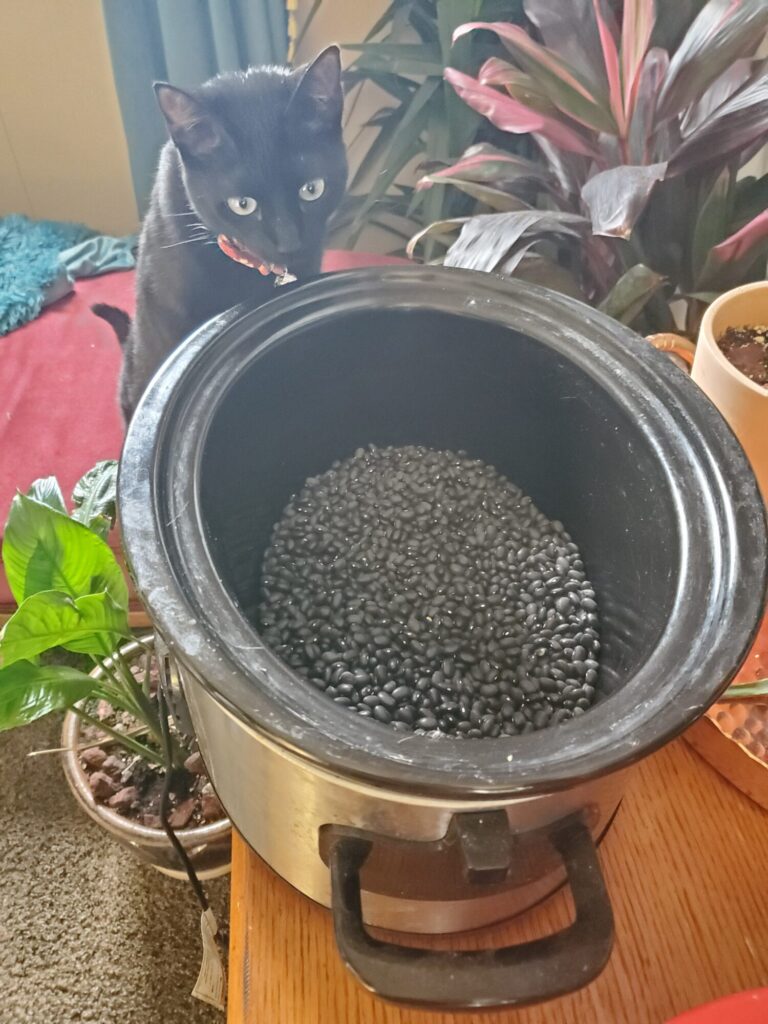
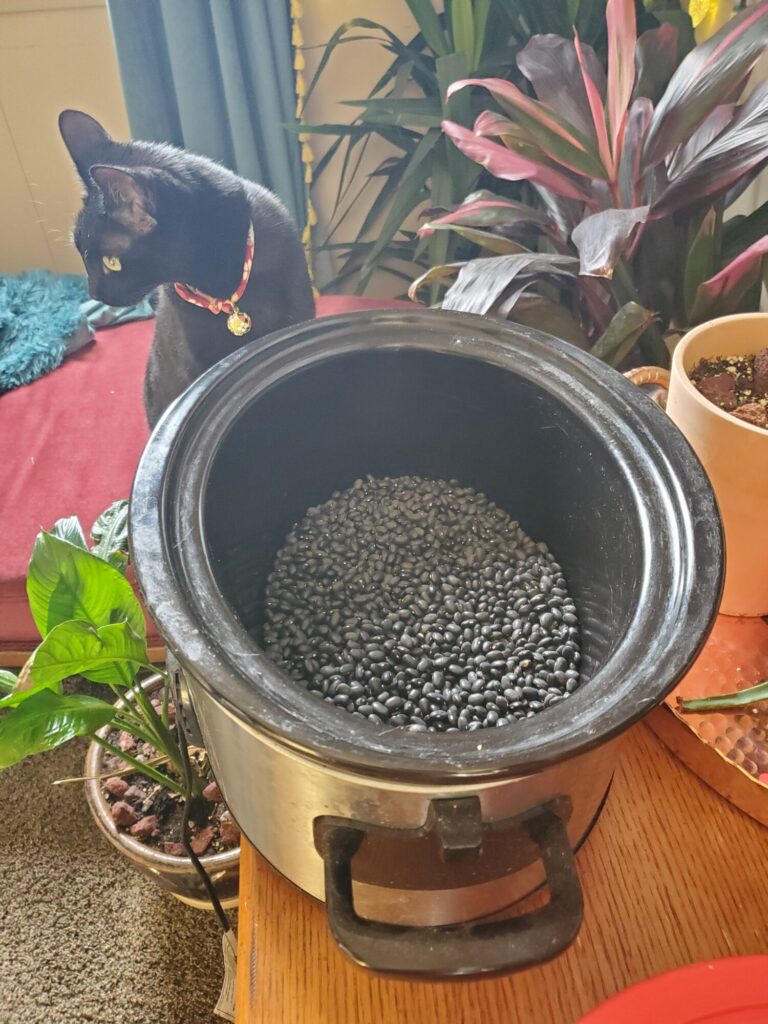
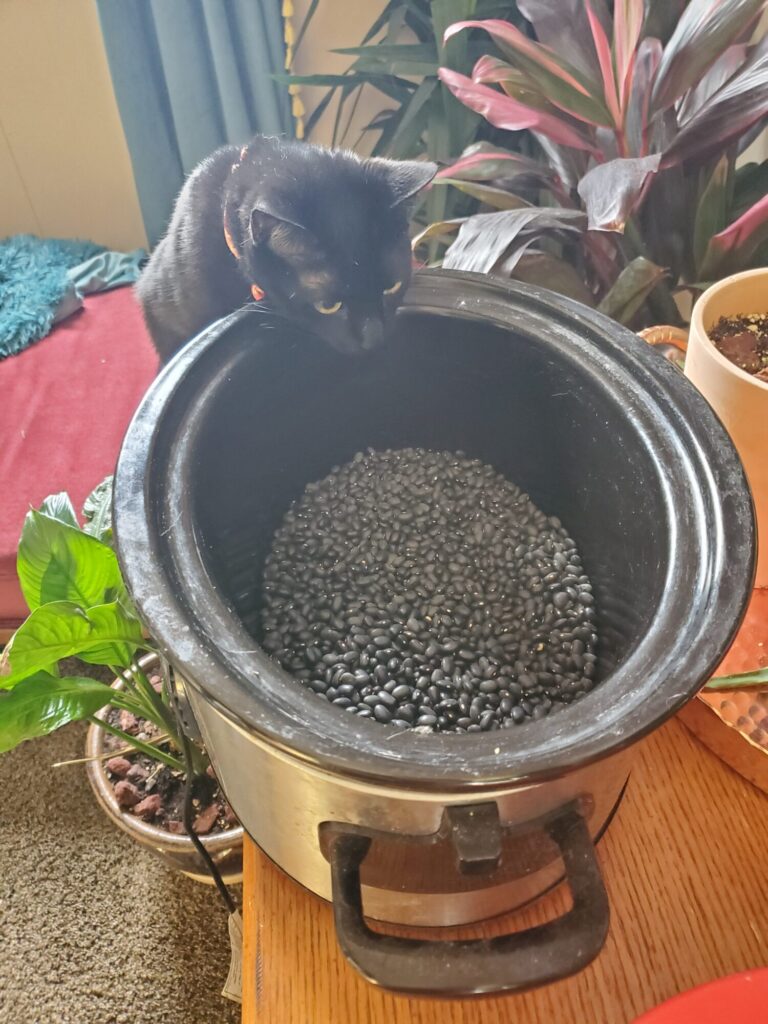
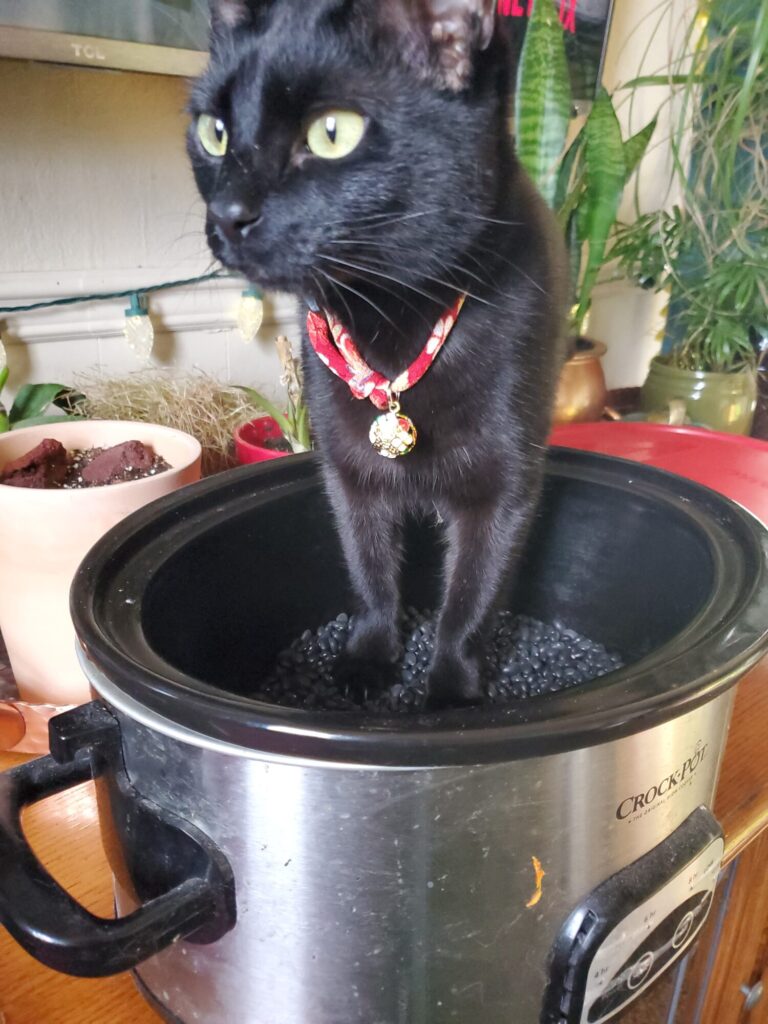
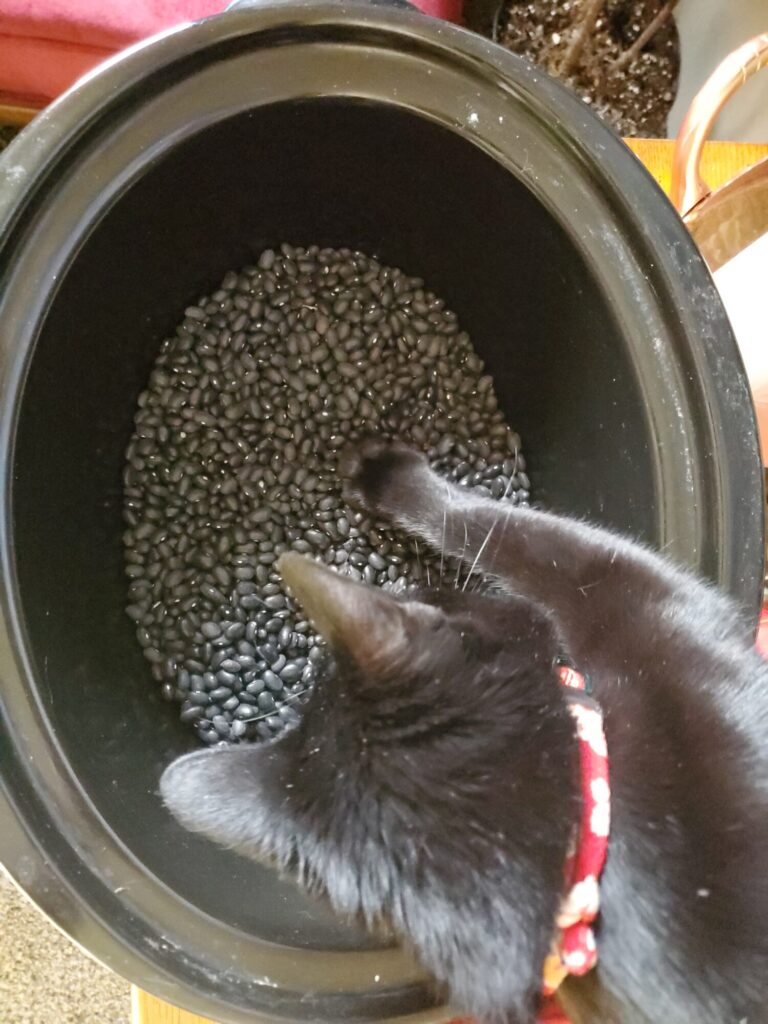
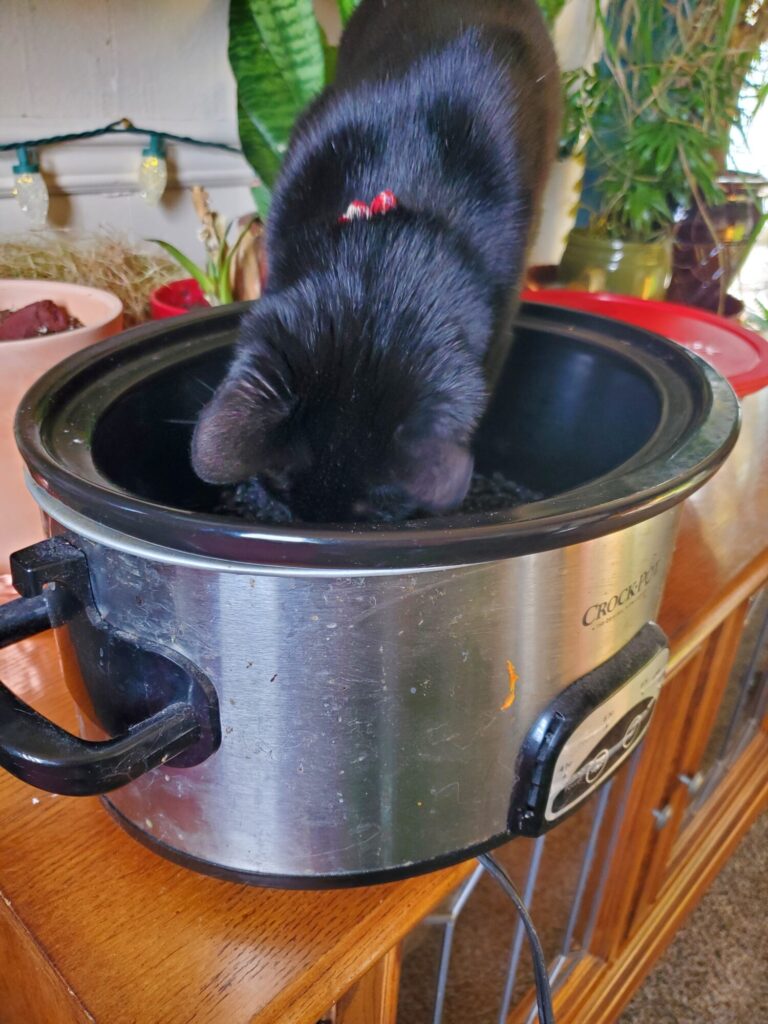
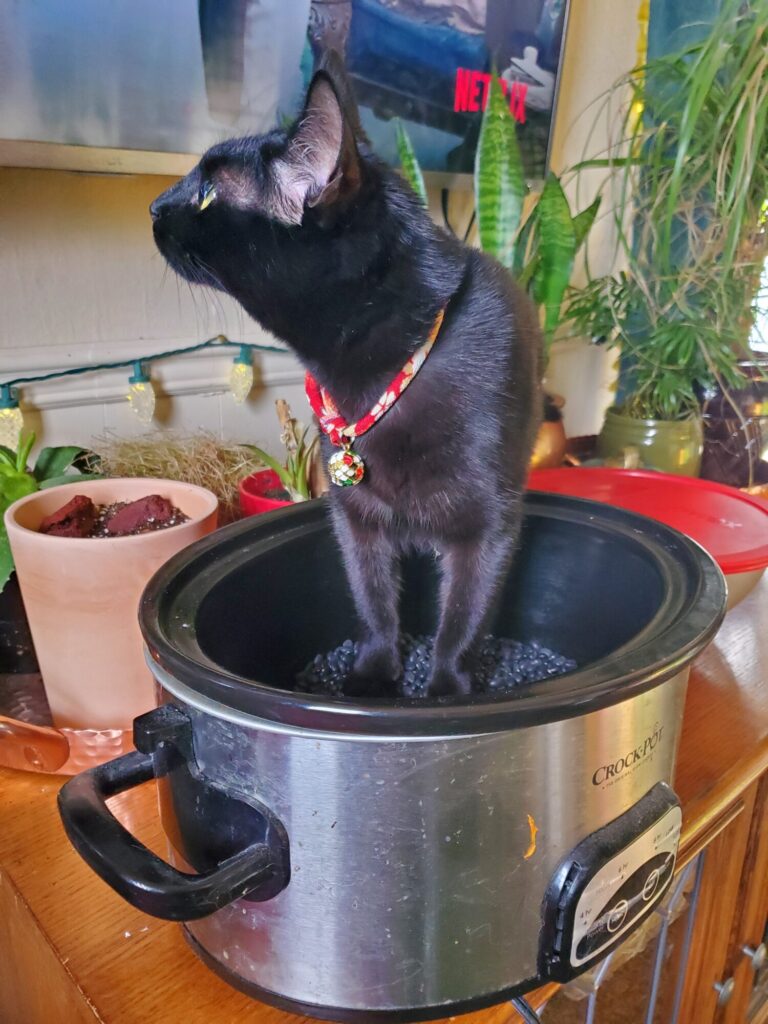
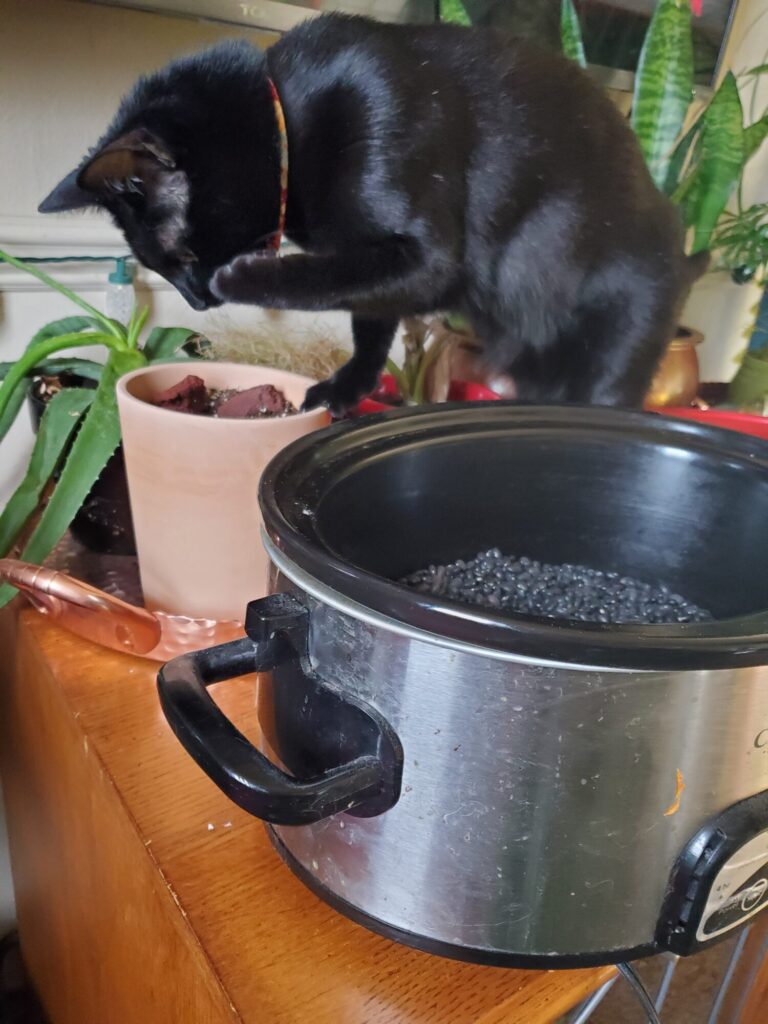
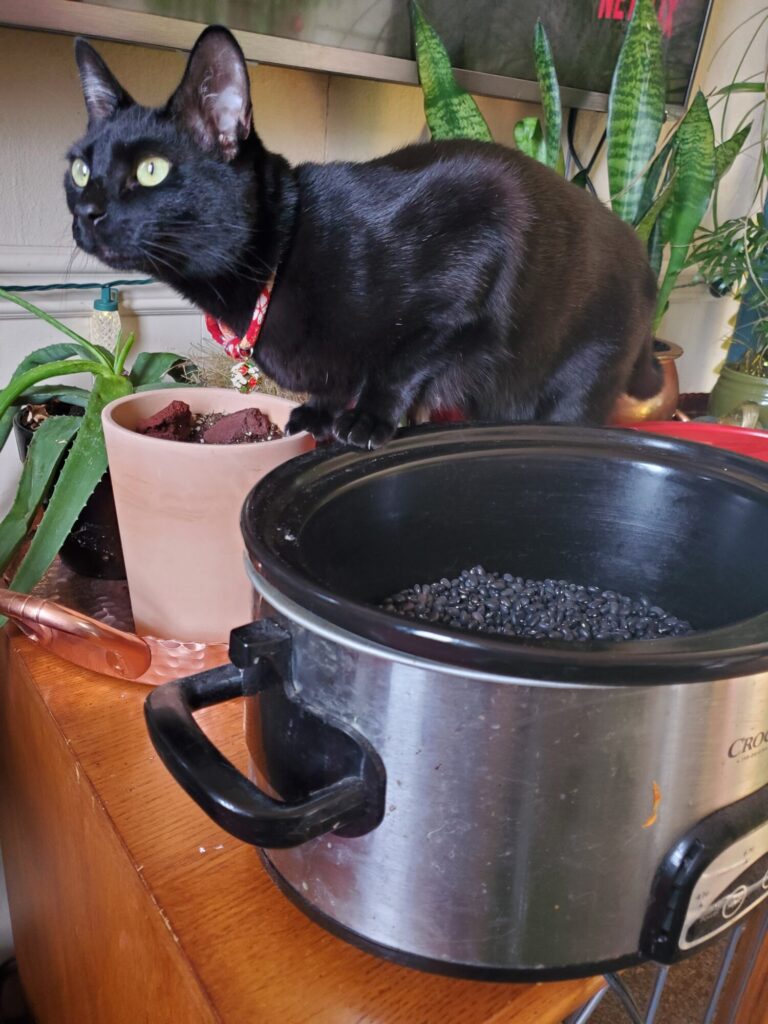
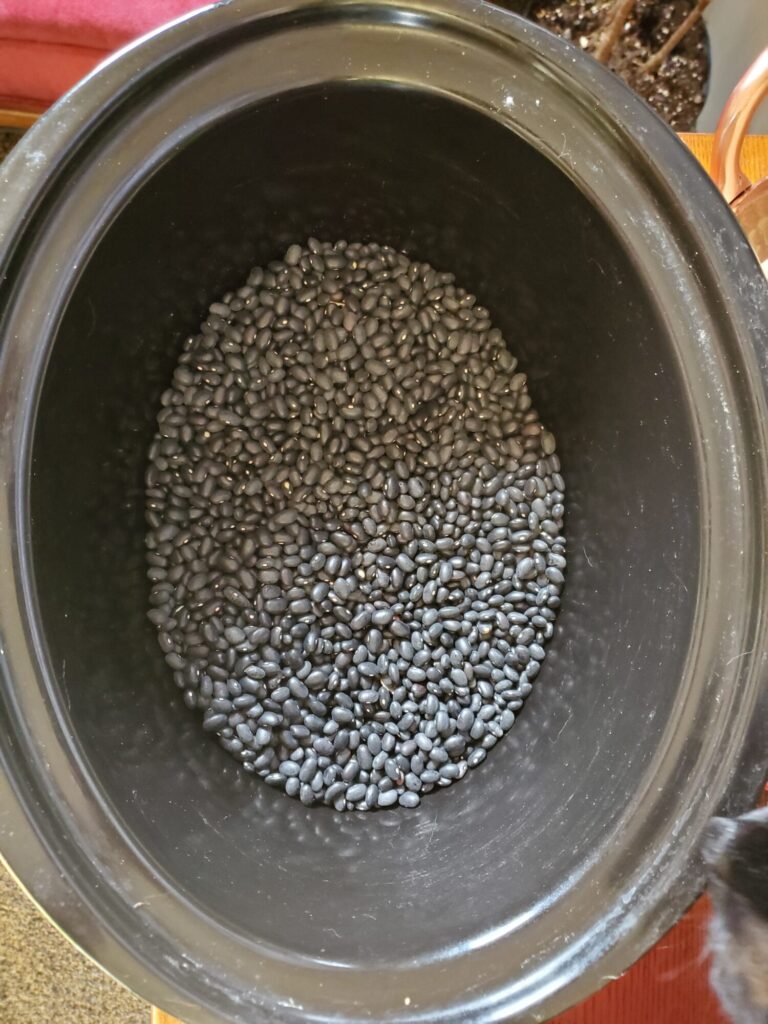

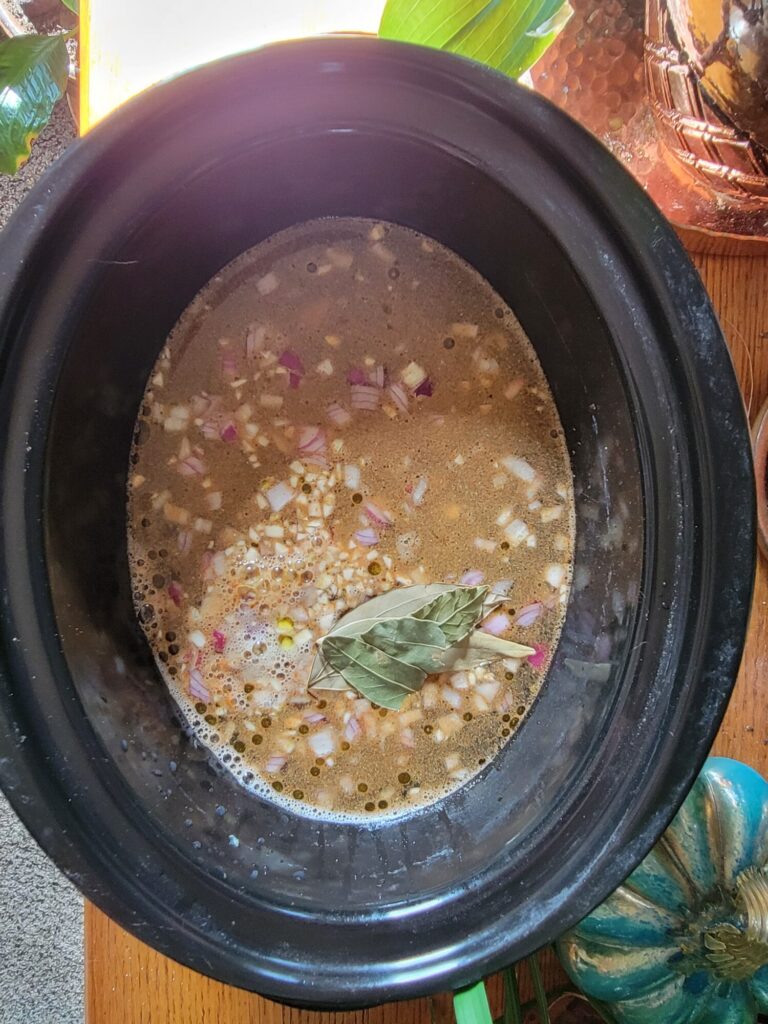


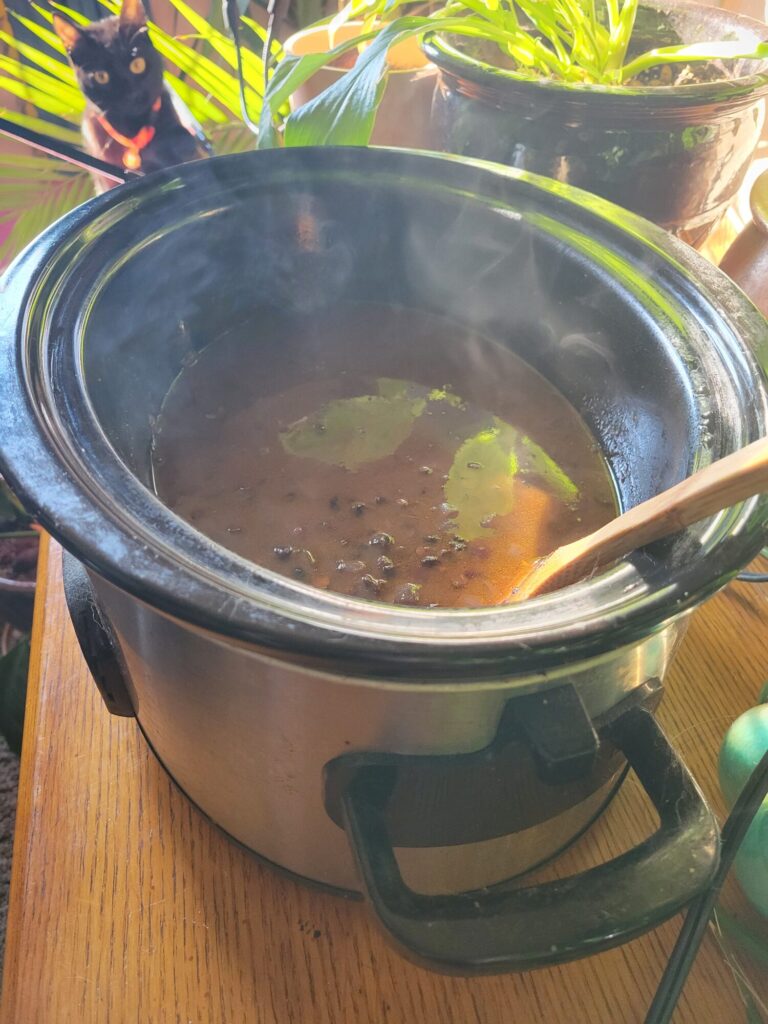

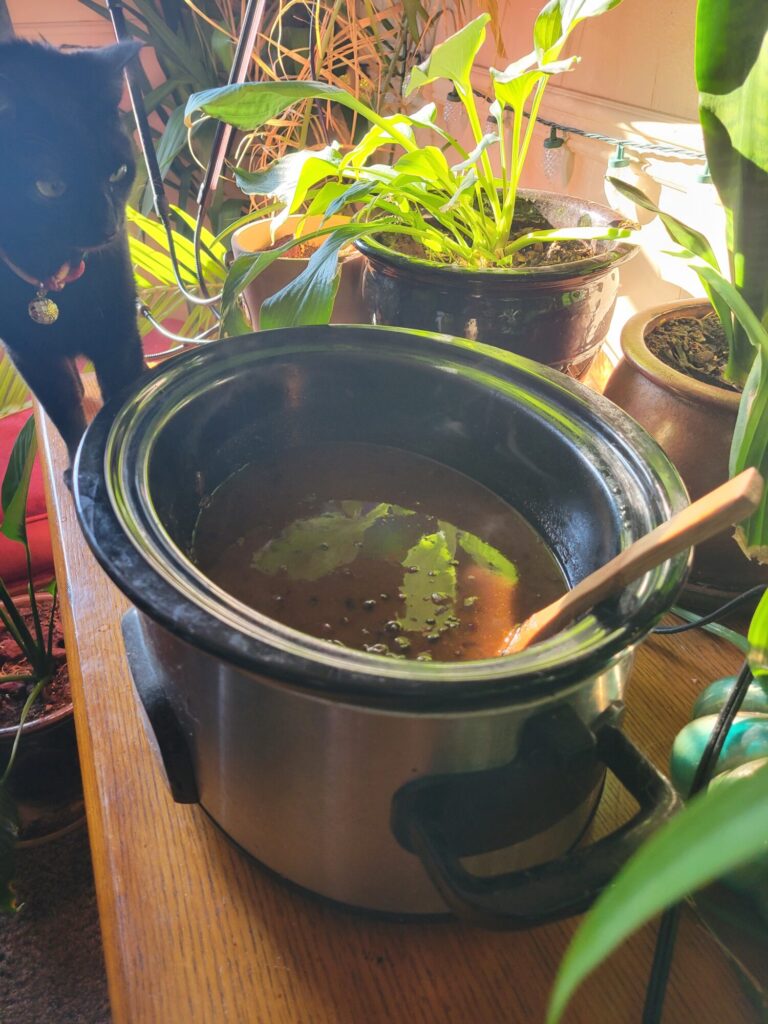
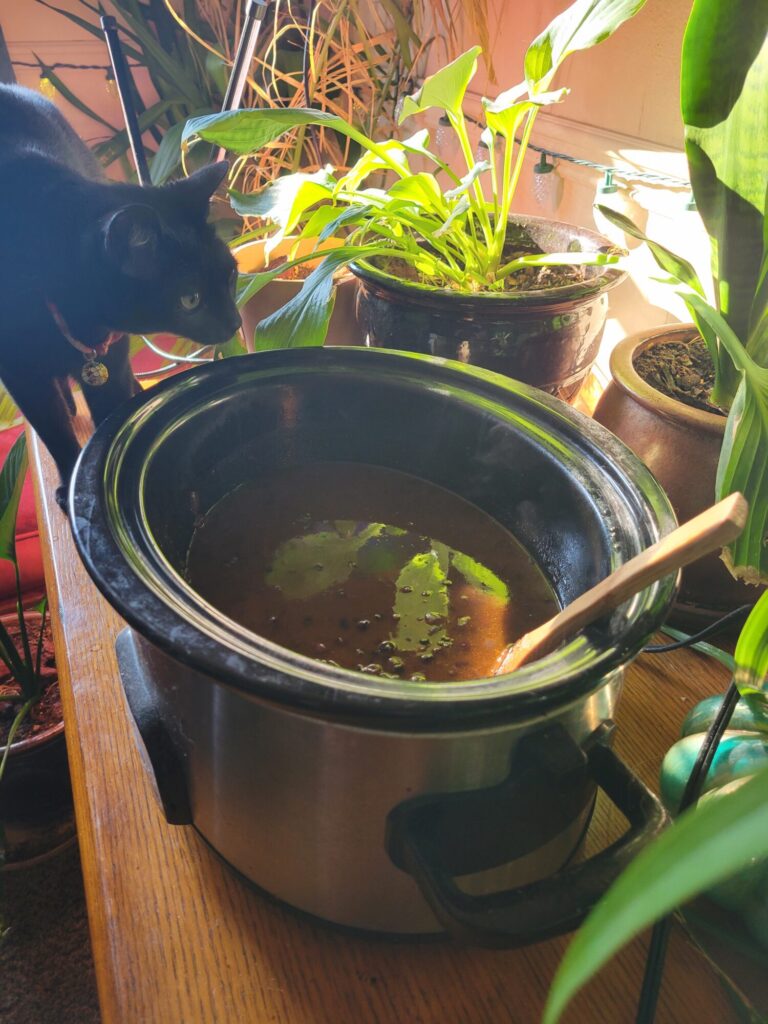
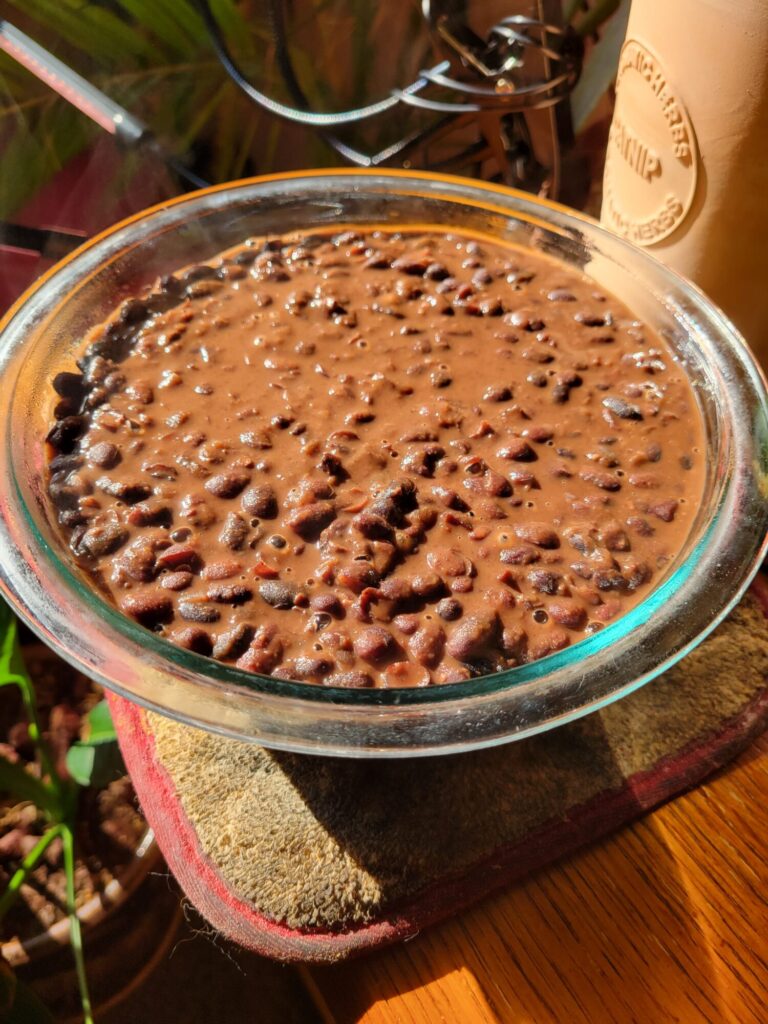
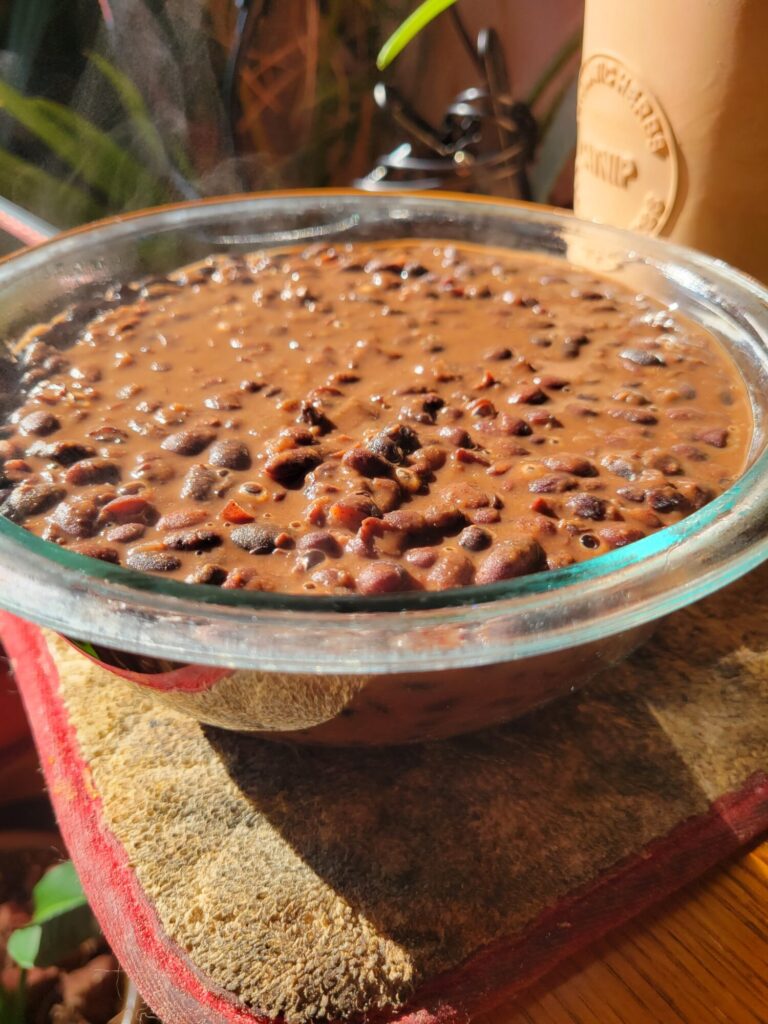
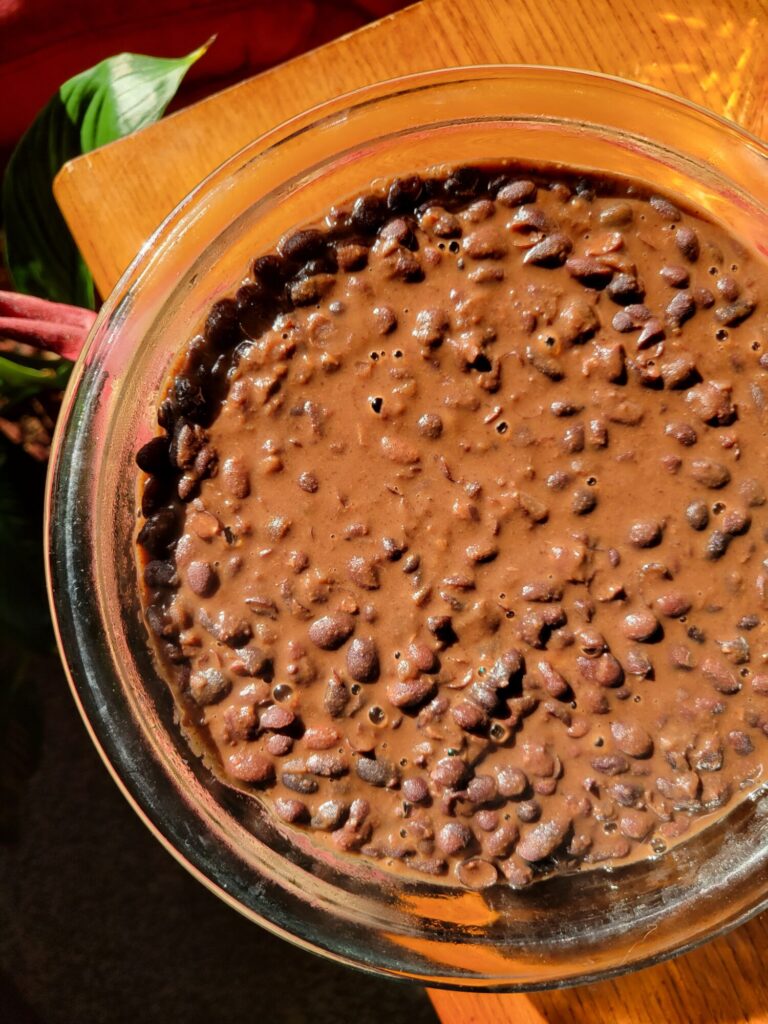
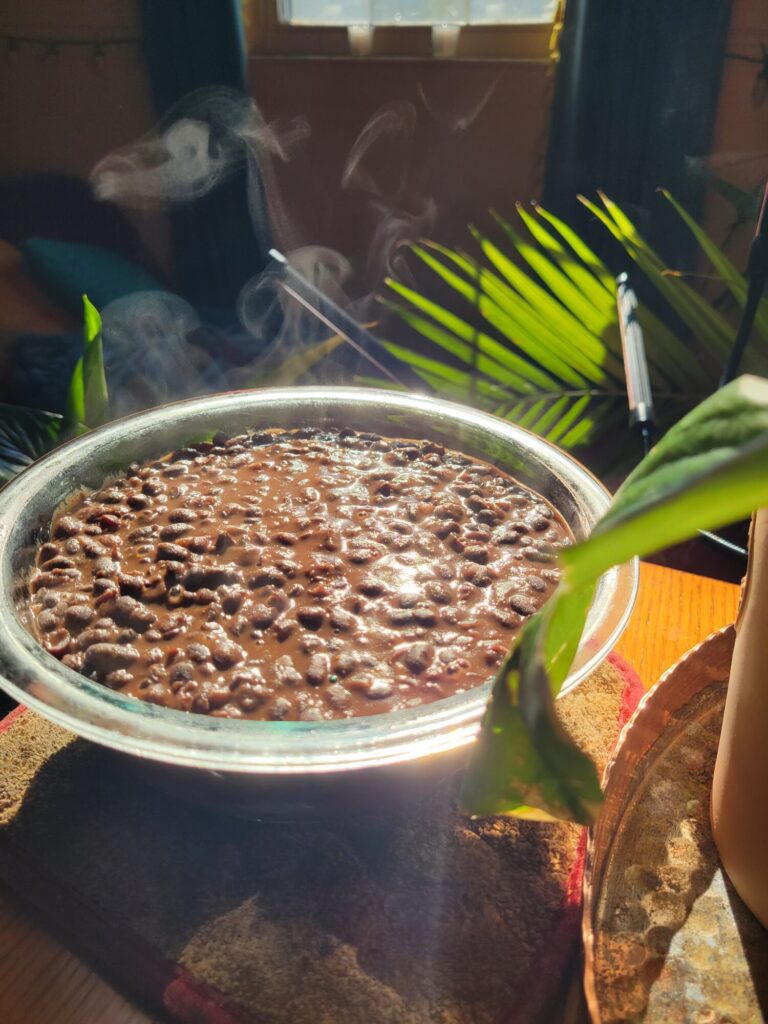

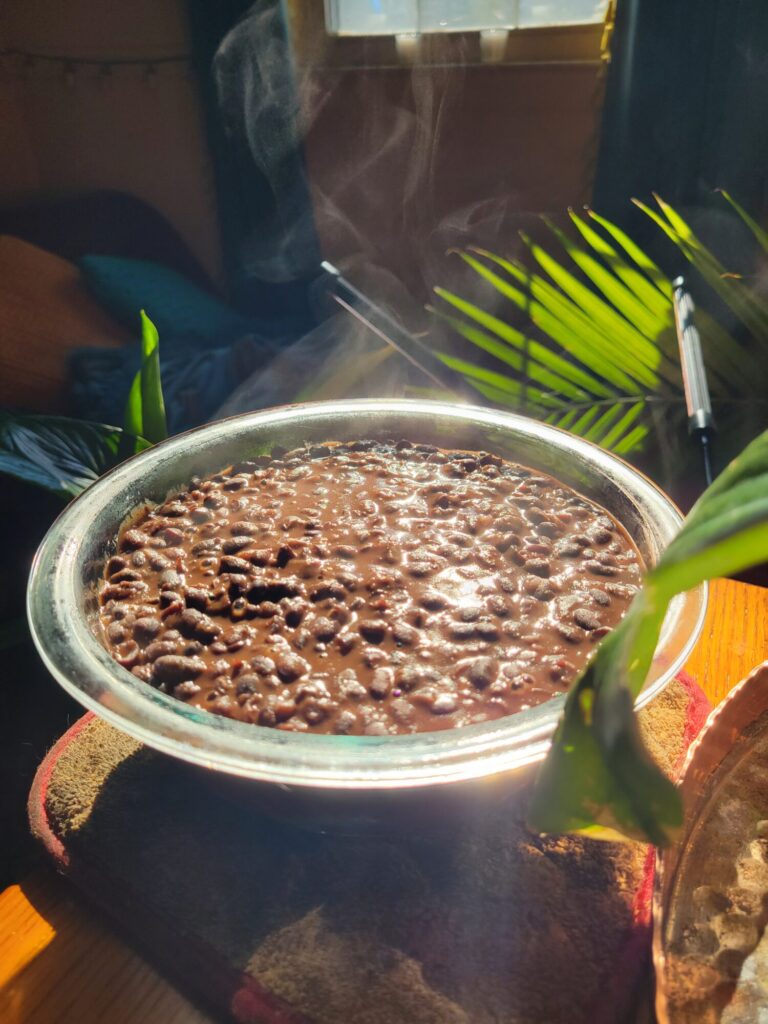

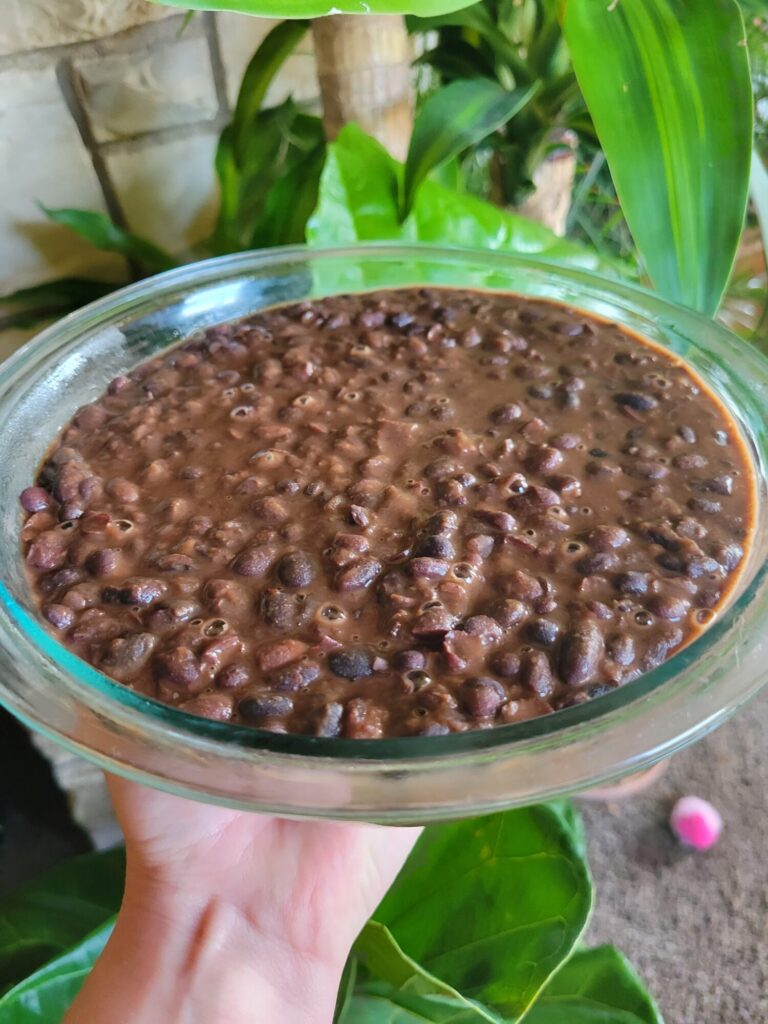
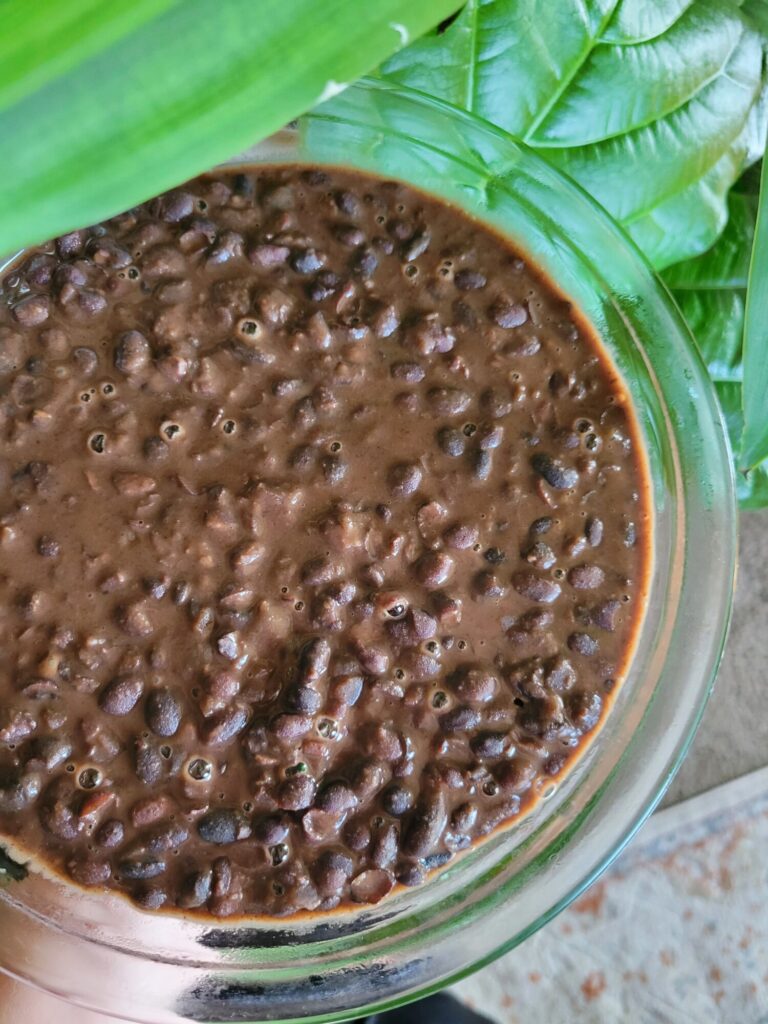

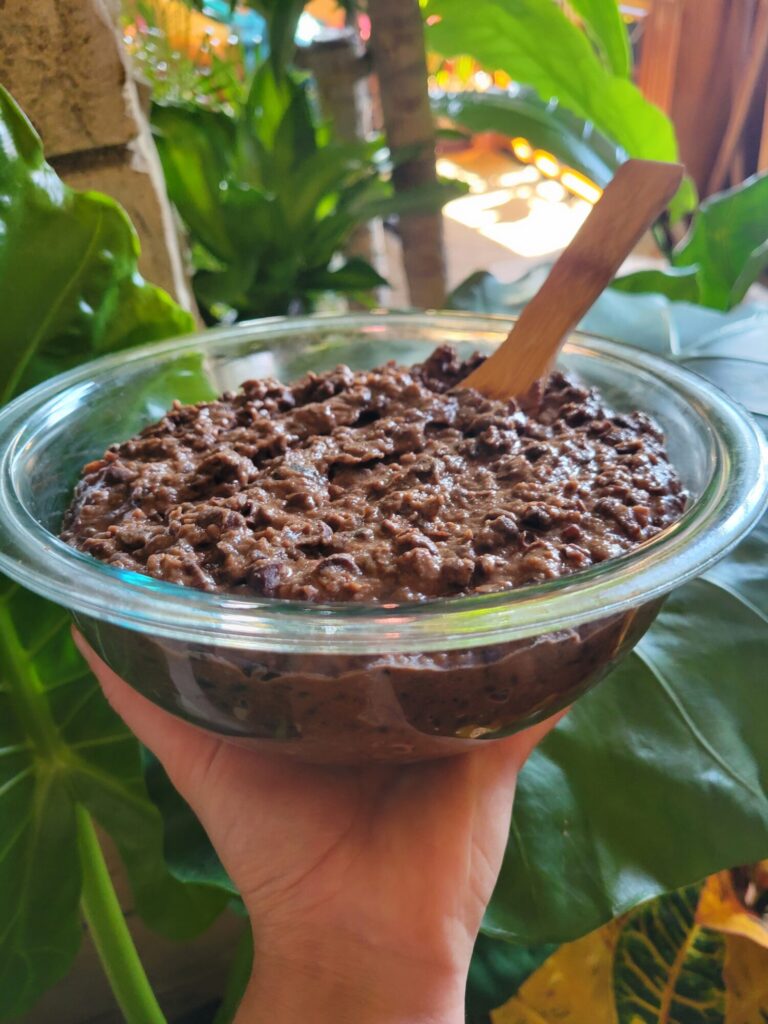
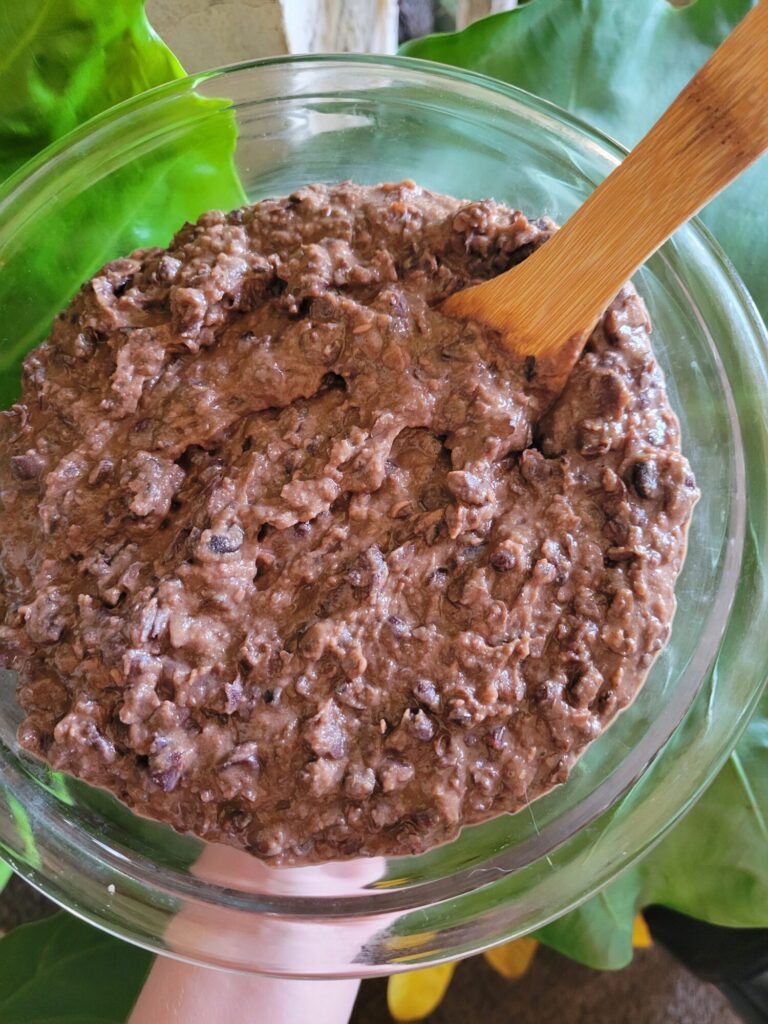
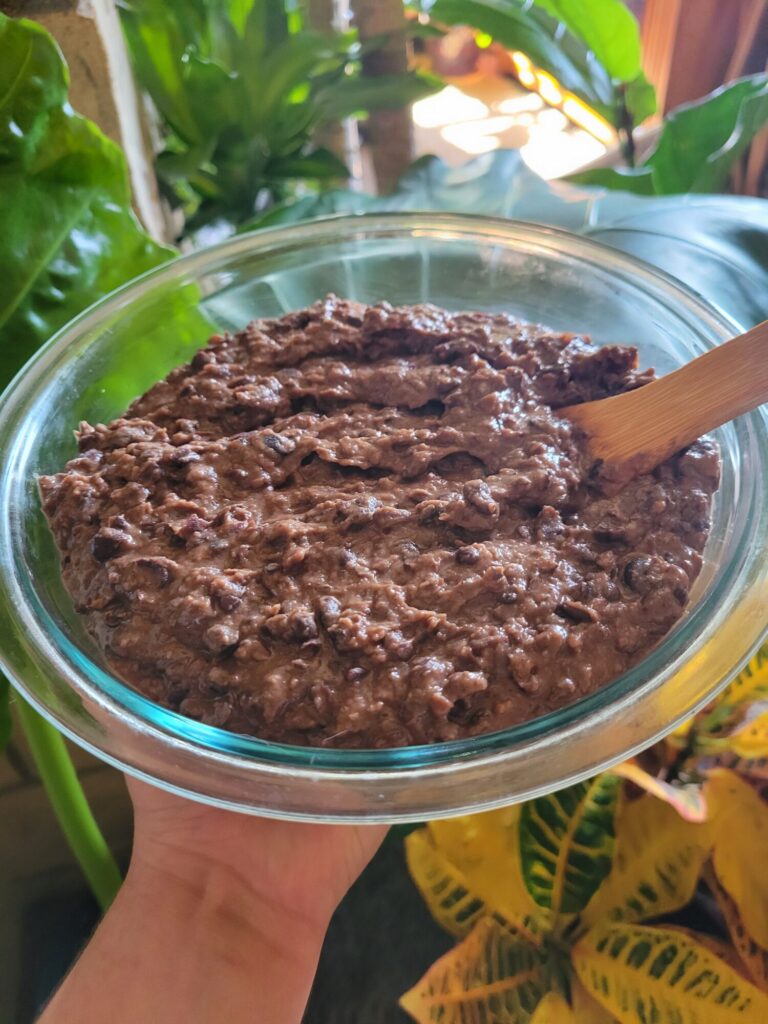
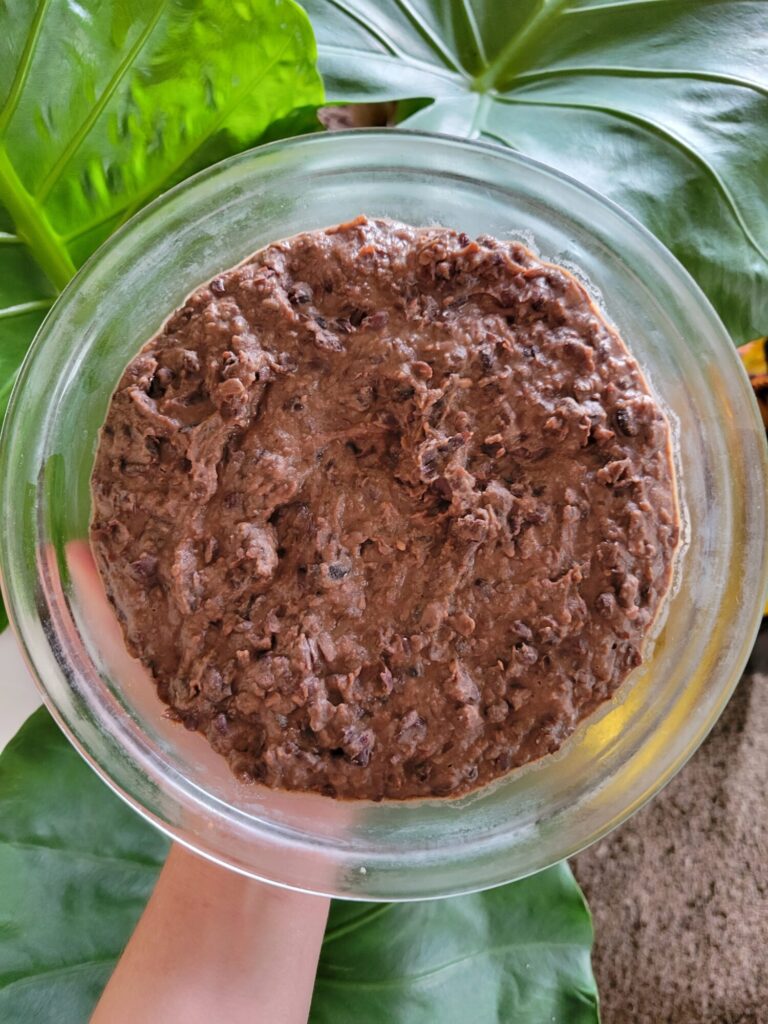
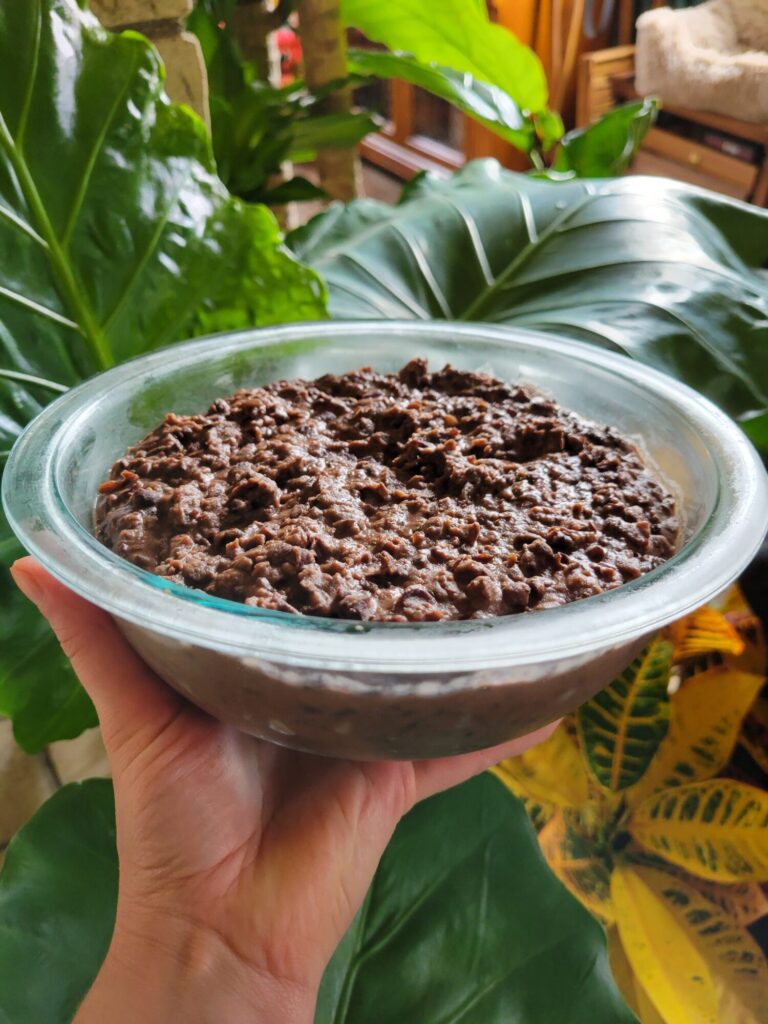
Esmérelda got a little too fascinated by this one! I don't ordinarily recommend rinsing your beans as necessary because they have absolutely already been washed before packaging! But, this may be an exception here... If there are cat feetsies in your human food, maybe go wash that real quick! Because the irony is obviously beyond her comprehension.
What to Make w/ Slow Cooker Black Beans
Black beans aren't necessarily a self-contained dish. They're more something that you put in another dish. Whether that's burritos, nachos, enchiladas, salads, burgers, or scrambled eggs! The sky is the limit. The important part is starting the process. And every year when peppers and tomatoes start to ripen, I make hoards of slow cooker black beans. Or pinto beans. Or navy beans. It's really just fresh fruits and vegetables, lemons and lives, and rice and beans season!
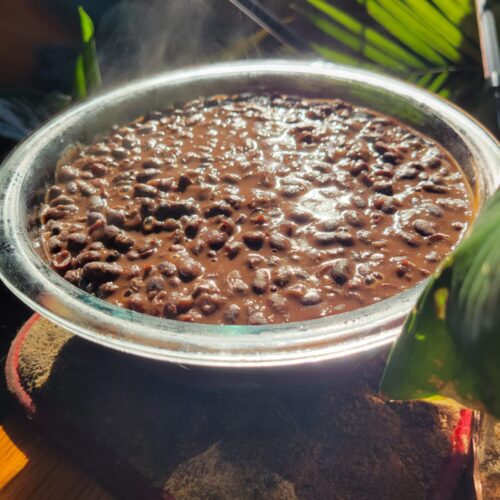
The Fundamentals of Slow Cooker Black Beans
Equipment
- Large Bowl
- Crock Pot
Ingredients
- 1 lbs. black beans ~2 cups
- 6 cloves garlic minced
- 1/2 red onion minced
- 1 tsp. salt
- 2 tsp. pepper
- 2 tsp. coriander
- 2 tsp. cumin
- 1 tsp. cayenne pepper
- 1 tsp. smoked paprika
- 4 bay leaves
- 2 tbsp. olive oil
- 2 limes juiced
- 5 c. water
Instructions
Cook Beans
- Add the beans and all of the other ingredients to a crock pot with 5 cups of water.
- Cook on low for 8 hours, or until the desired consistency is reached. I like to start the beans in the morning and then come back to then after work or before bed to wake up to freshly cooked beans.The beans should retain their shape during the cooking process (and not start to break apart), but should be soft enough to pinch between your fingers or a fork. It's much like the consistency of a baked potato, where you could theoretically turn it into mashed potatoes, but it also stands on its own.There may still be some residual water left in the crock pot after 8 hours. If the beans aren't fully cooked, simply continue to cook until the water cooks in and the beans are the right tenderness. If the beans are fully cooked, you can drain the water or quickly simmer the remainder of it out on the stove. Depending on how old your beans are, they may require slightly different amounts of water to re-hydrate. Older beans will take more water and time, while fresher beans will cook in less time with less water.
- Remove the bay before serving or storing.The bay leaves are for flavor and not everyone wants to eat an entire leaf! So, take note of how many you put in and make sure to remove them after cooking. You can pull them out later. But, if you refrigerate the beans, they'll solidify more when chilled and the bay leaves will be harder to find. It's easier to do this while they're still warm and you can easily sift through them!
- If you want to make no-fry refried beans or more of a bean dip, remove the bay leaves and mash with a potato masher. You can also pulse in a food processor or purée entirely.This process might require more water. So, if you do have additional water left in the crock pot after cooking, you may want to reserve it and add back in if necessary to create a smoother no-fry refried bean consistency.
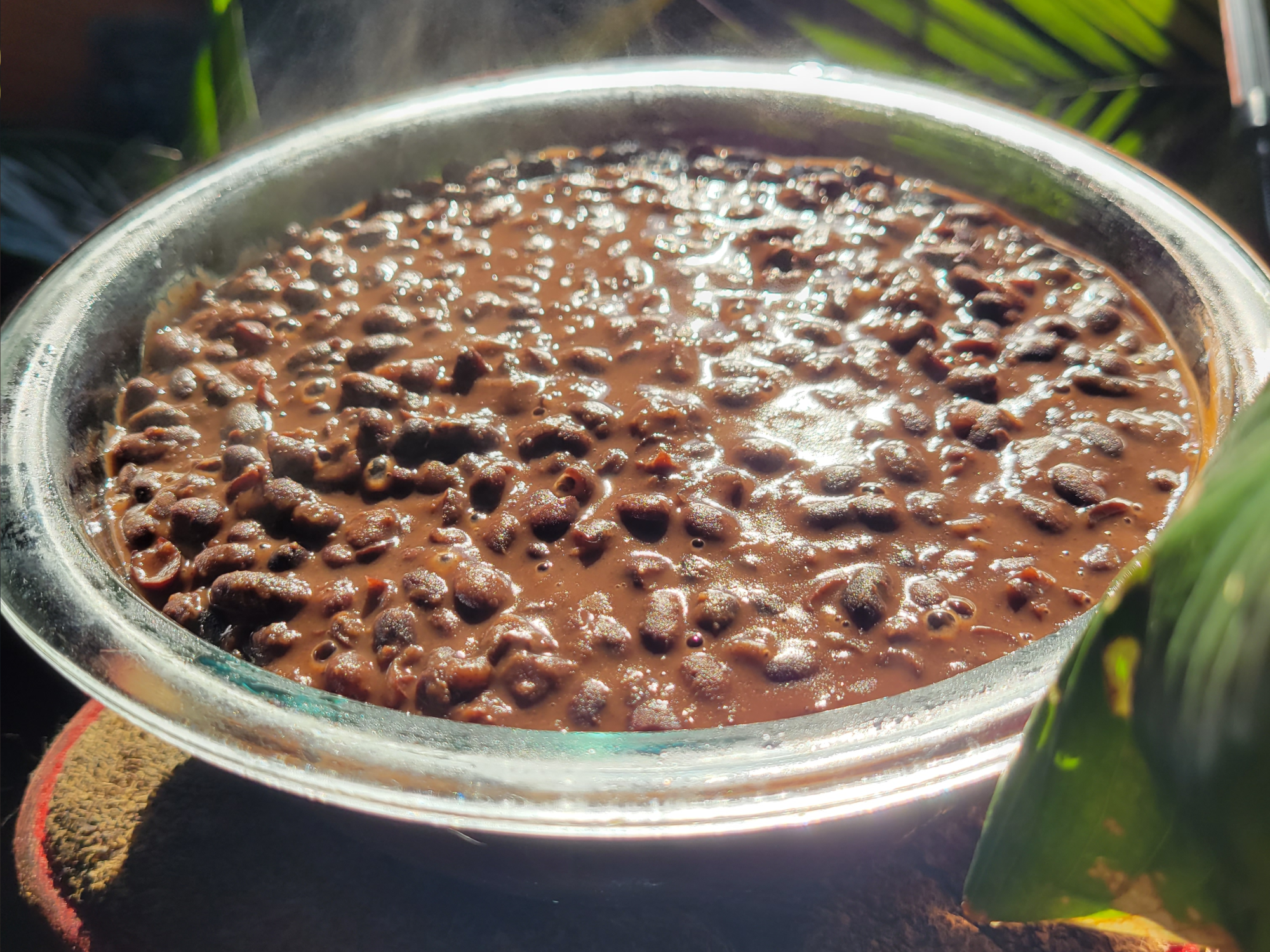
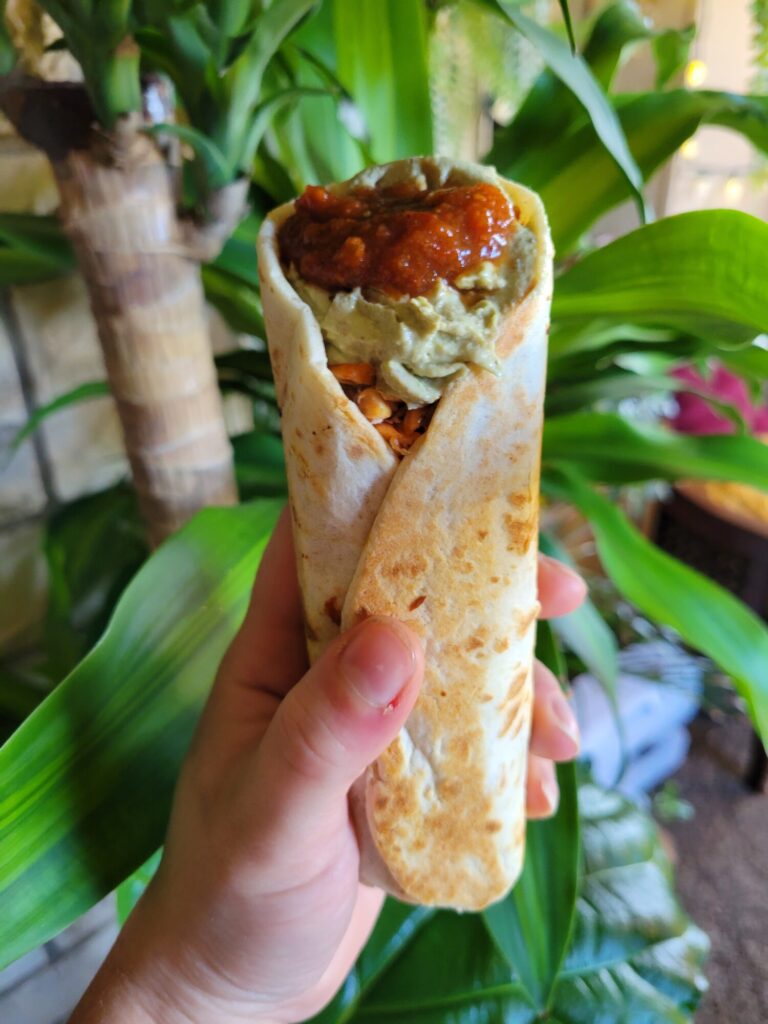
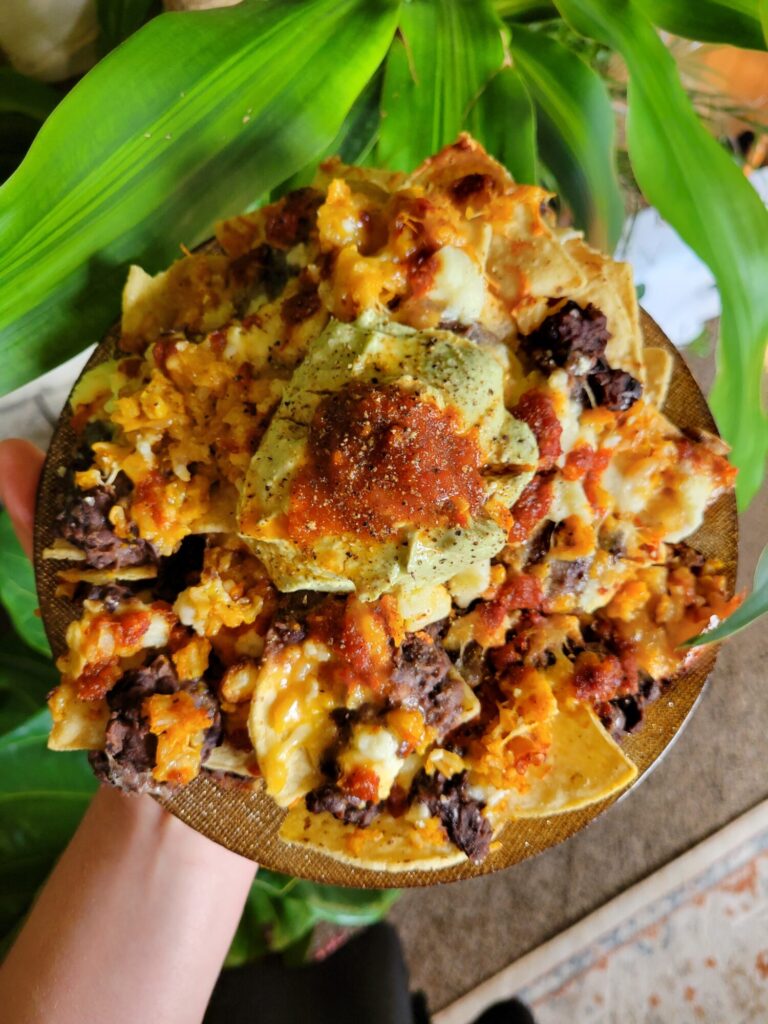
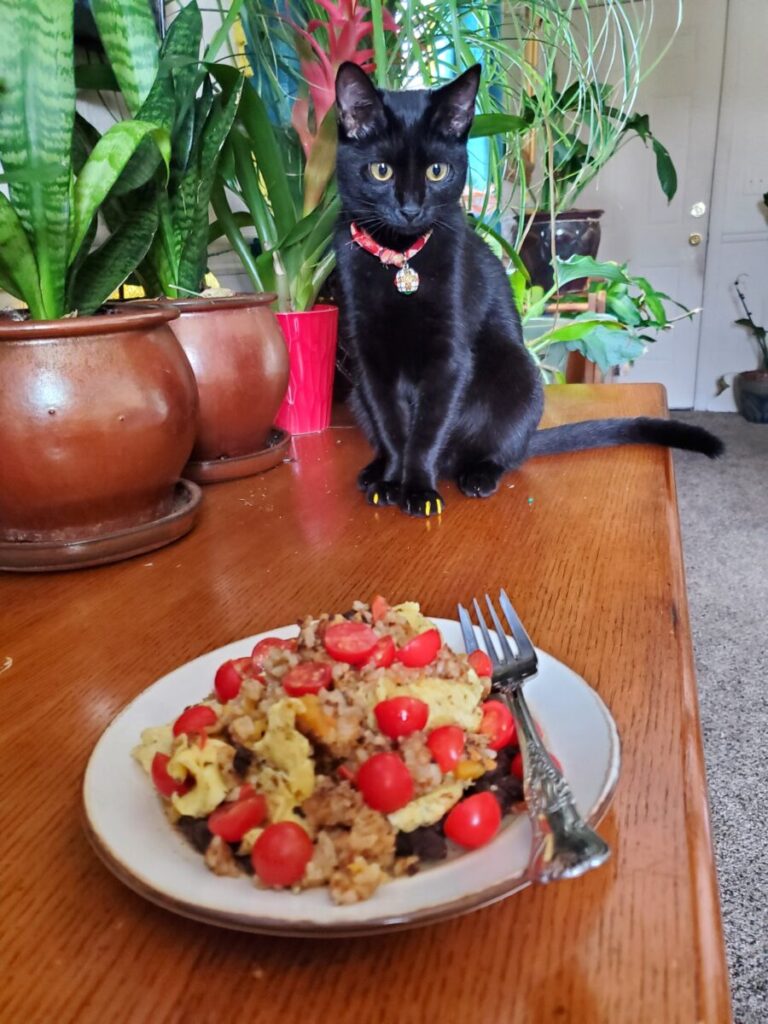
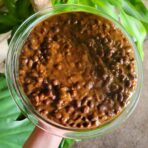
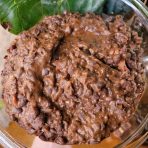
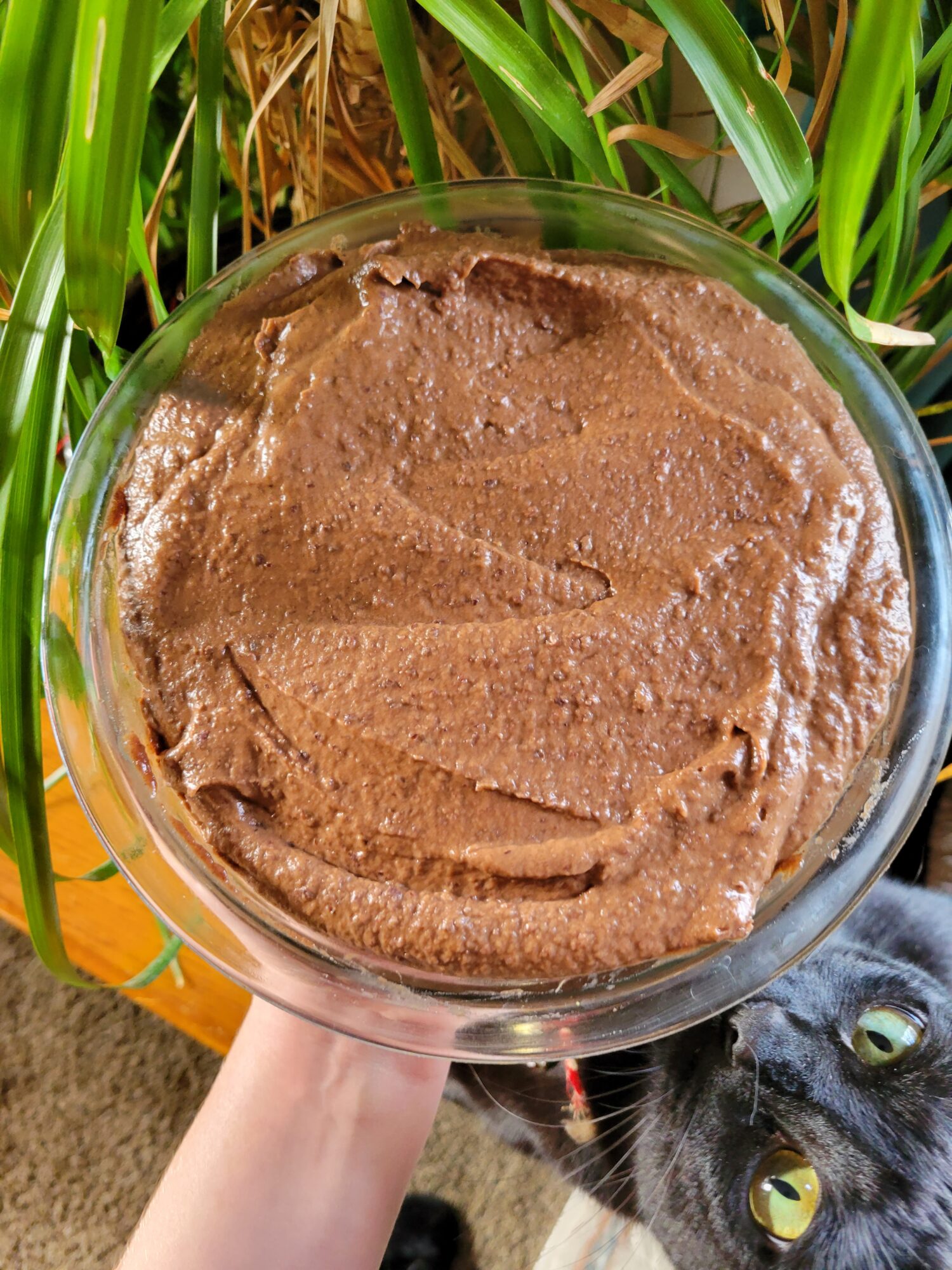
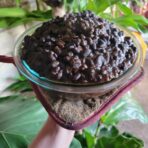
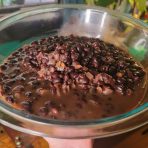
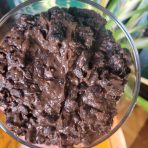
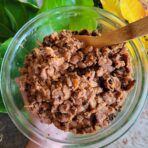
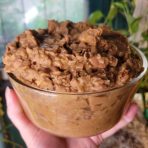
Leave a Reply